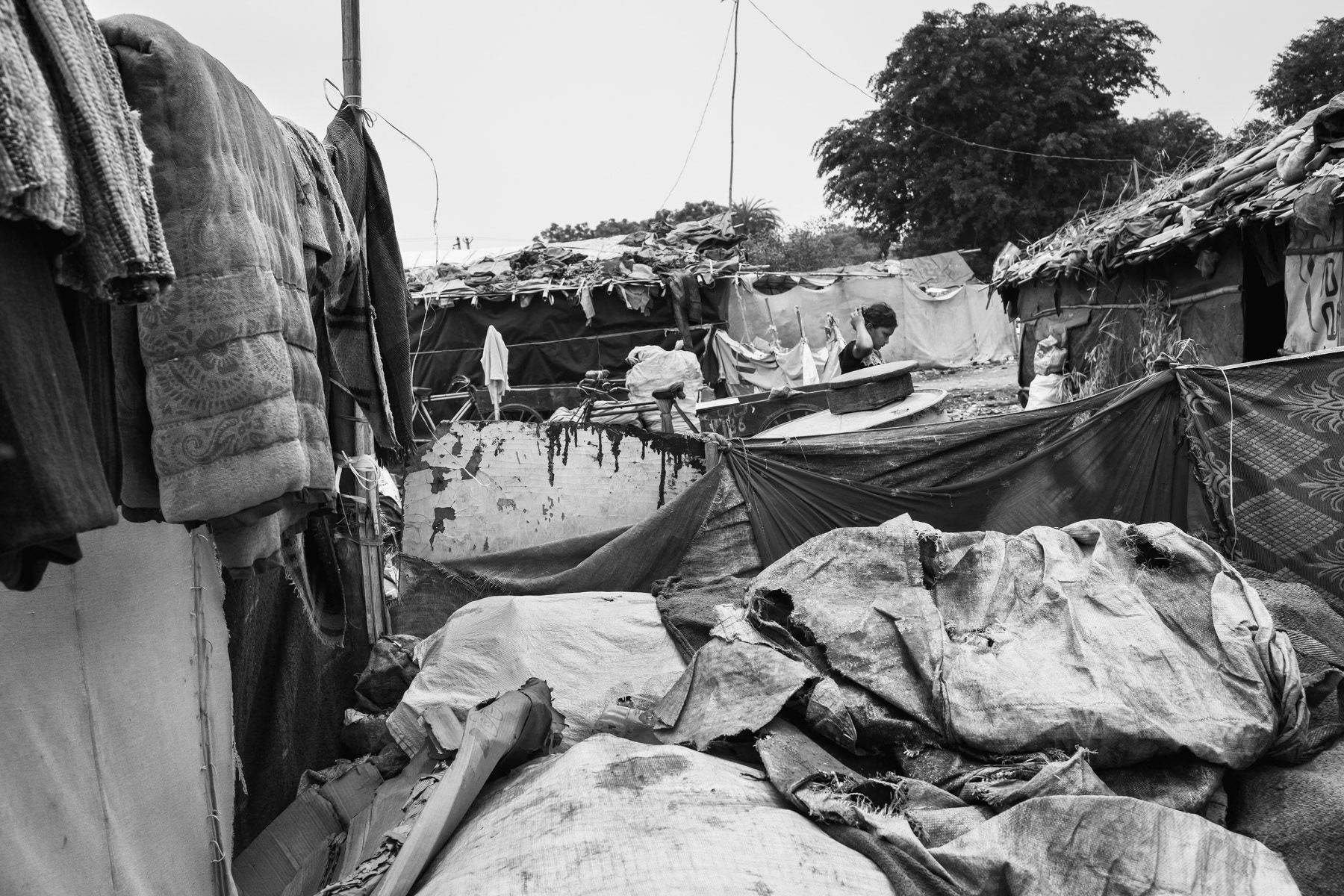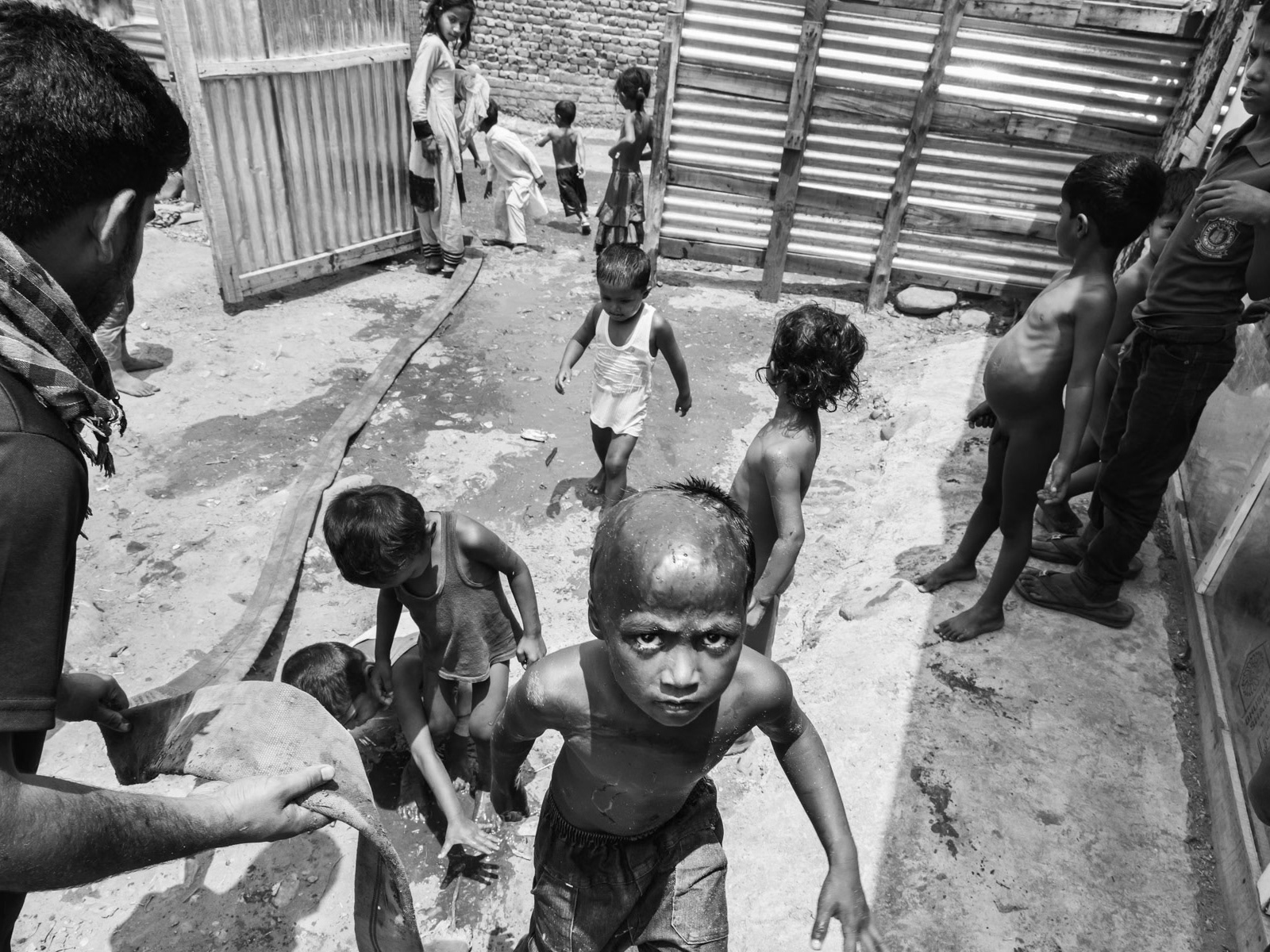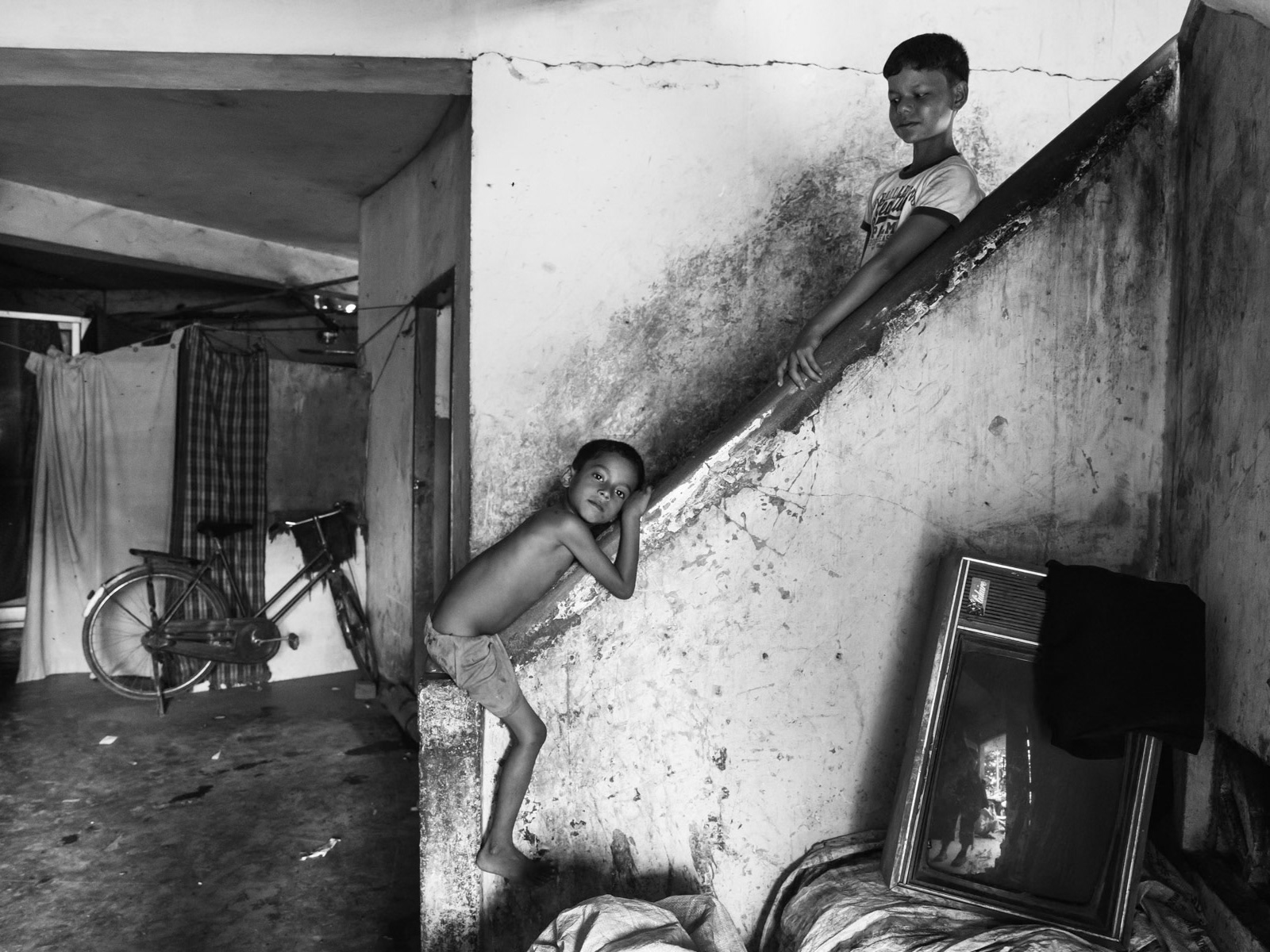Approximately 30,000 Rohingya refugees have fled persecution in Myanmar and sought refuge in India, settling mainly in urban slums across Haryana, Delhi, Hyderabad, Jammu, Jaipur, and Chennai. However, their plight in India mirrors the dire conditions they faced in Bangladesh, marked by poverty, exploitation, and insecurity.
Most Rohingya refugees in India live in overcrowded, makeshift shelters within marginalized urban areas, lacking basic sanitation, clean water, and access to healthcare. Without formal refugee status or legal protections, they remain vulnerable to exploitation, including bonded labor. Many find themselves at the mercy of traffickers or human smugglers who manipulate their desperation, trapping them in conditions akin to modern slavery. These traffickers often coerce refugees into unpaid or poorly paid labor in exchange for false promises of stability, safety, or documentation.
The lack of legal recognition and restricted access to education or formal employment further compounds their vulnerabilities, perpetuating a cycle of poverty and dependence. Rohingya children, too, are deeply affected, with many unable to access schools, leaving an entire generation at risk of being denied basic rights and opportunities.
Additionally, the refugees face growing hostility amid a political climate that often portrays them as security threats. Incidents of discrimination, harassment, and even detention have risen, adding to their precarity. Without significant intervention or support from the government or international humanitarian organizations, the Rohingya in India remain trapped in a dire situation, stripped of agency and basic dignity.
Urgent action is needed to address their vulnerabilities, provide legal protection, and ensure access to essential services. Strengthened regional cooperation and adherence to international human rights standards are critical to securing a future for the Rohingya refugees, breaking the cycle of exploitation and displacement they continue to endure.
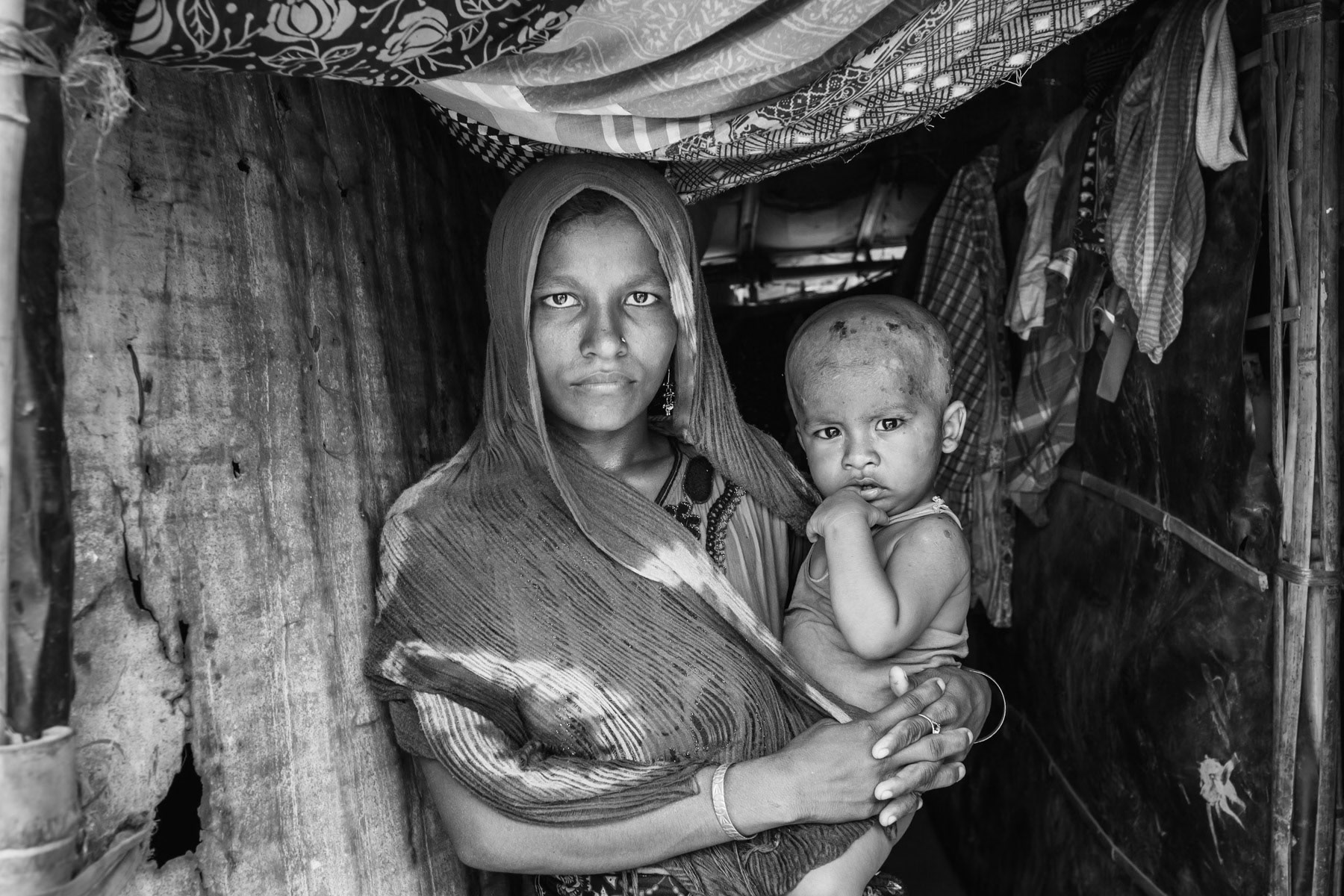
Stranded Rohingya refugees in India. More than 30,000 Rohingya have fled to India since 2012. Mewat, Haryana State, India, June 2016
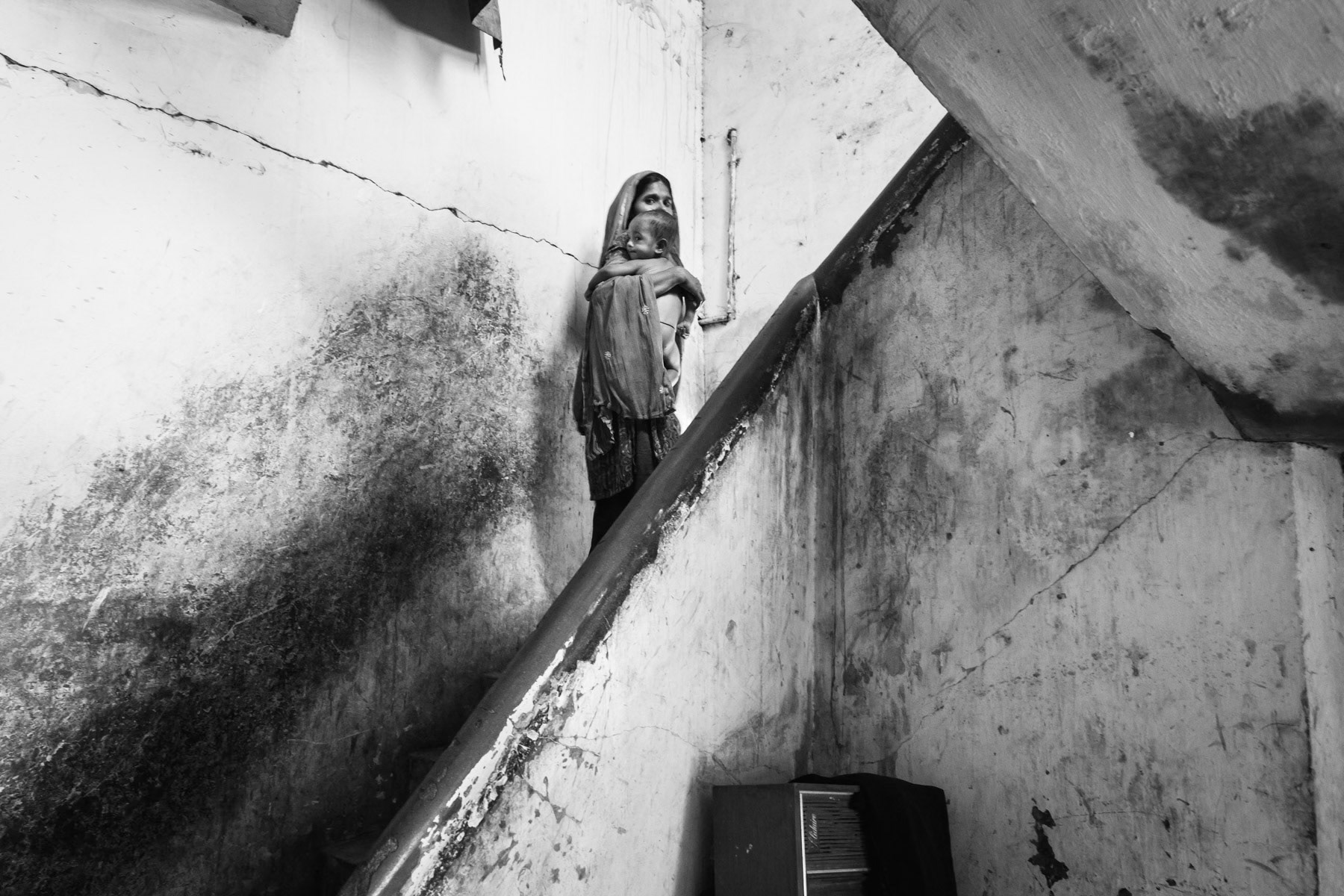
One hundred Rohingya refugees live in an abandonned cyclone shelter in Kelembakkam near Chennai in the Indian State of Tamil Nadu, India, June 2017
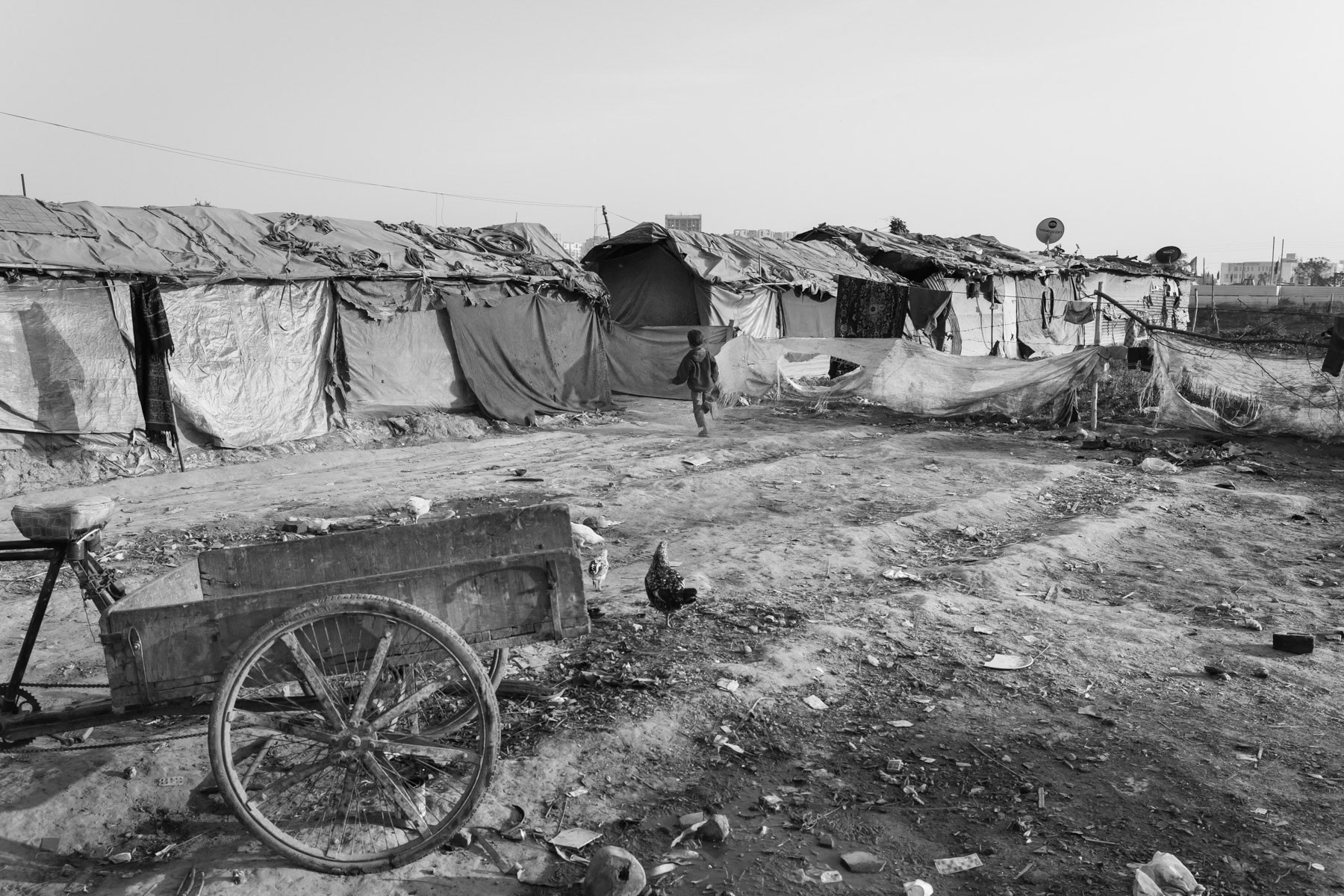
Rohingya refugees living in a state of bonded labour, working until they can pay off their debts for having been smuggled into India. Faridabad in Haryana State, India, January 2016
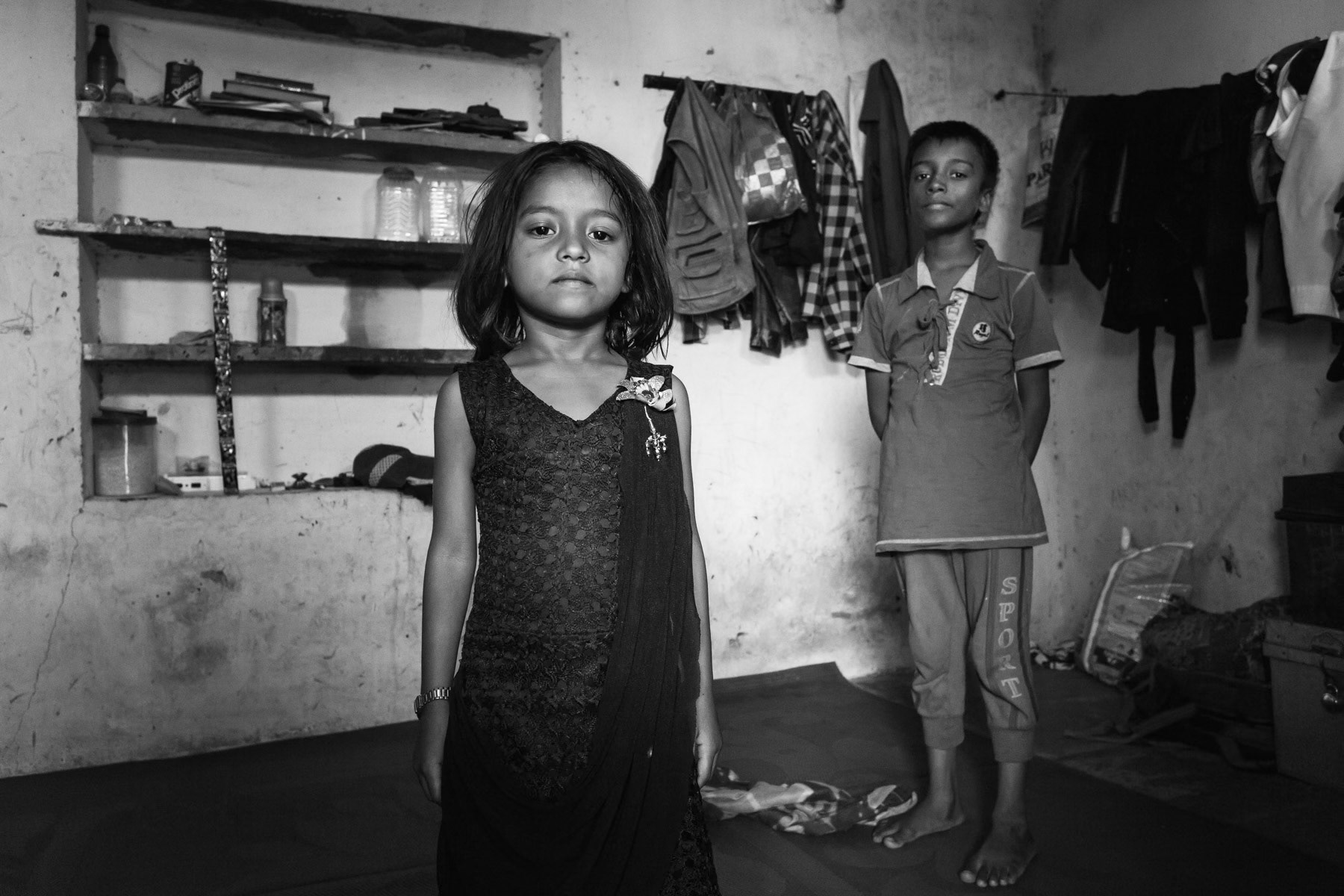
Brother and sister, Balapur camp for stateless Rohingya, Hyderabad, India, June 2016
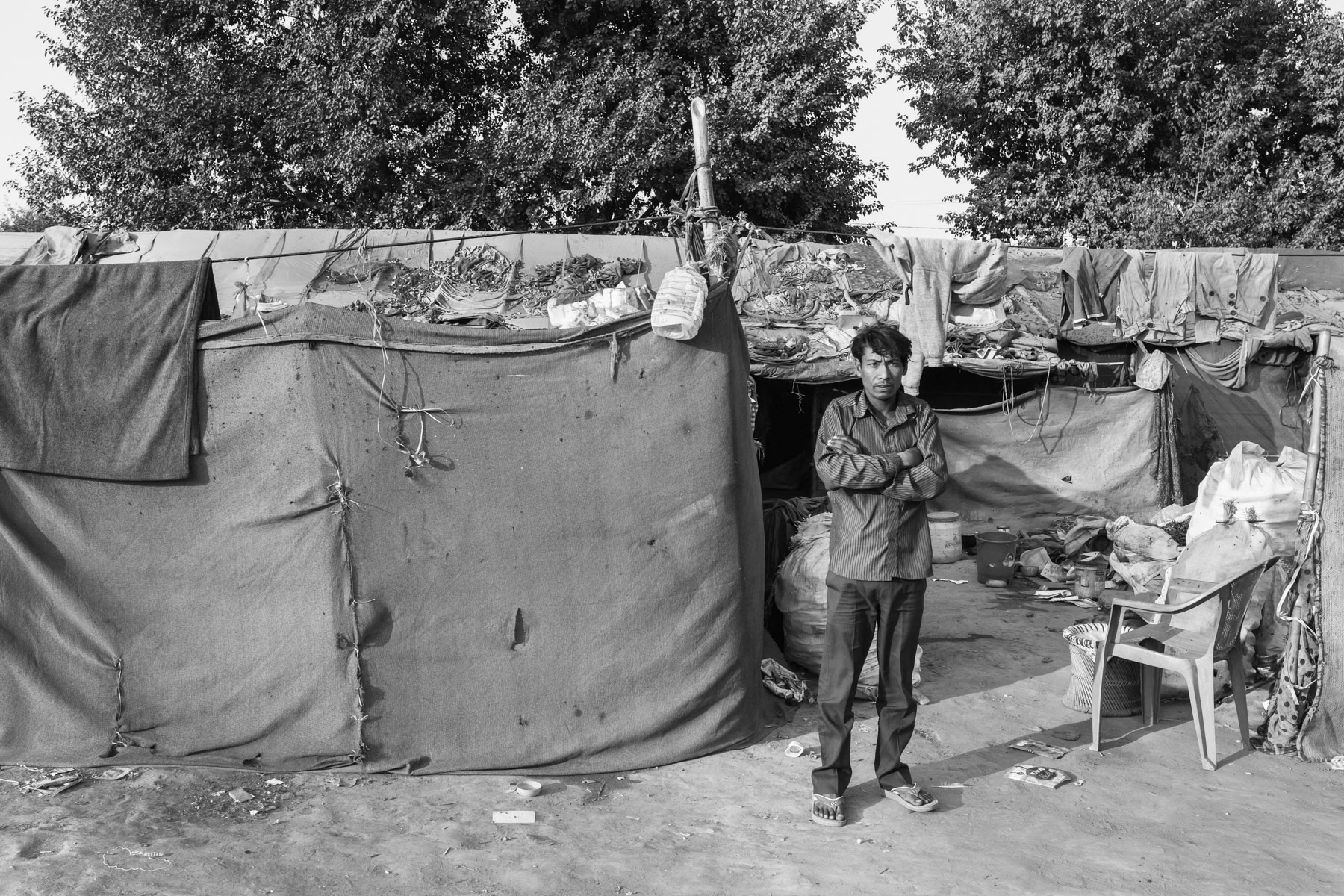
Rohingya refugees living in a state of bonded labour, working until they can pay off their debts for having been smuggled into India. Faridabad in Haryana State, India, January 2016
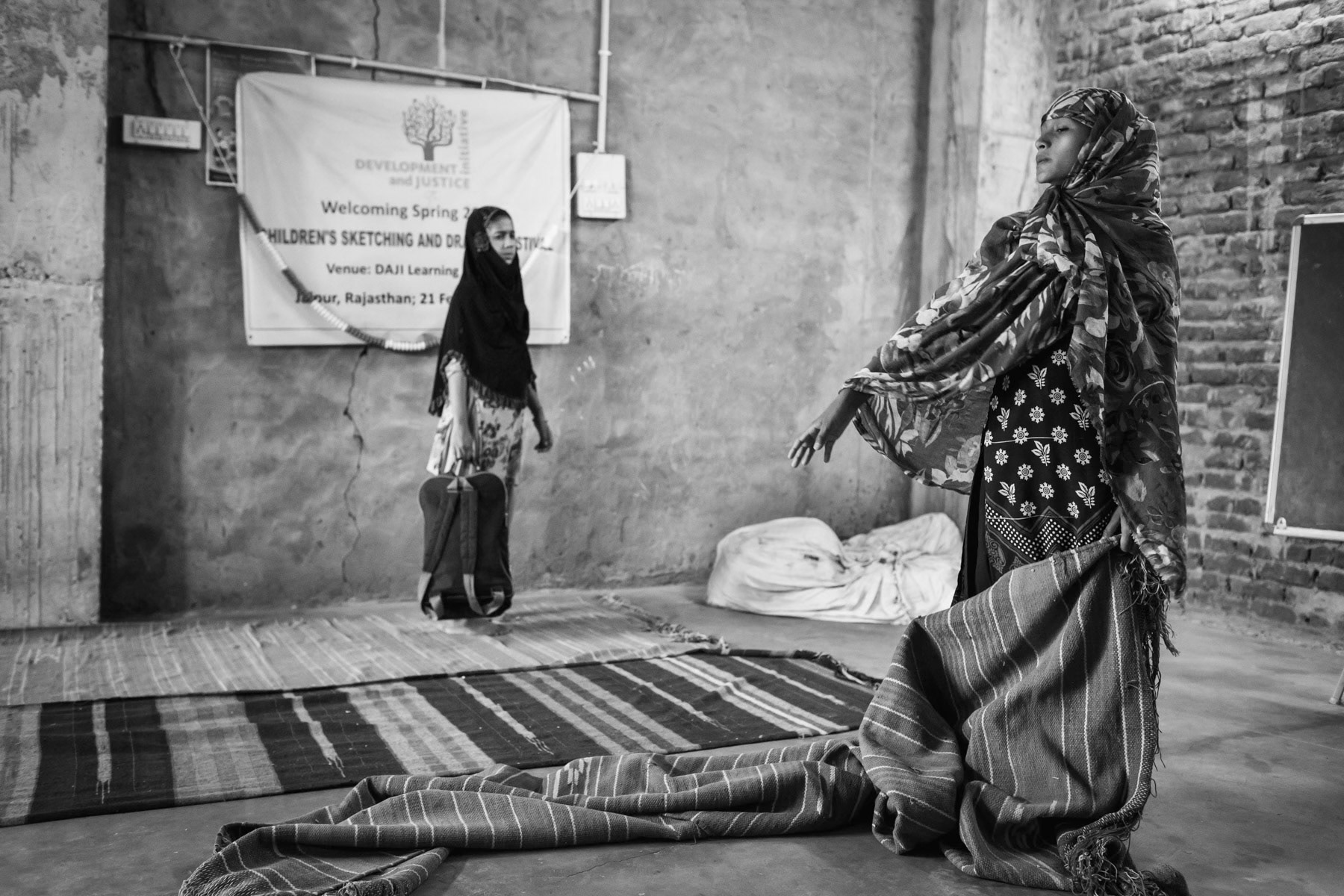
Preparing for the class. After school in an unfinished building for Rohingya children. Hasanpura neighborhood, Jaipur, India, June 2016
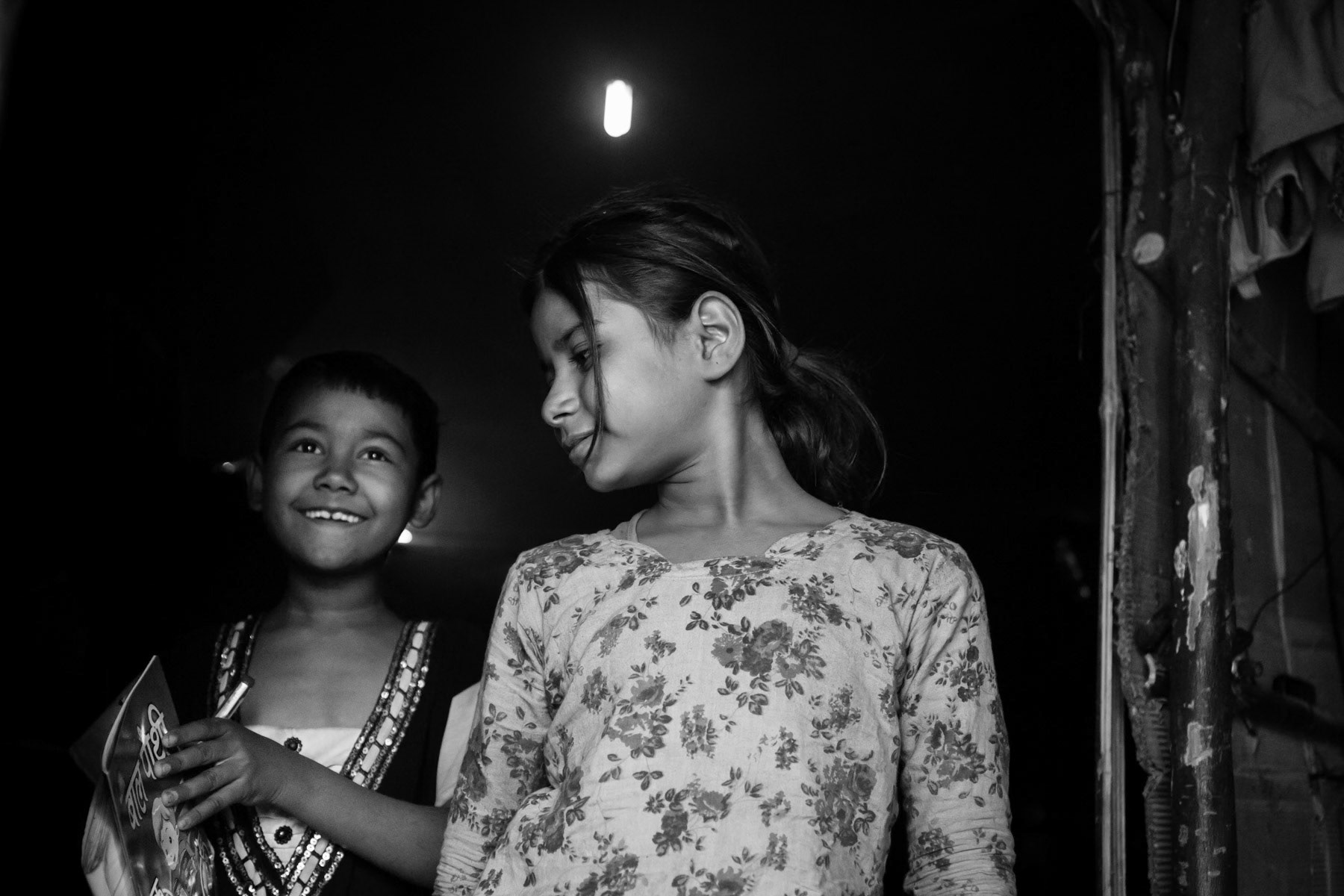
Rohingya refugees from Myanmar in New Delhi, Sharam Vihar camp in Okhla, India, January 2016
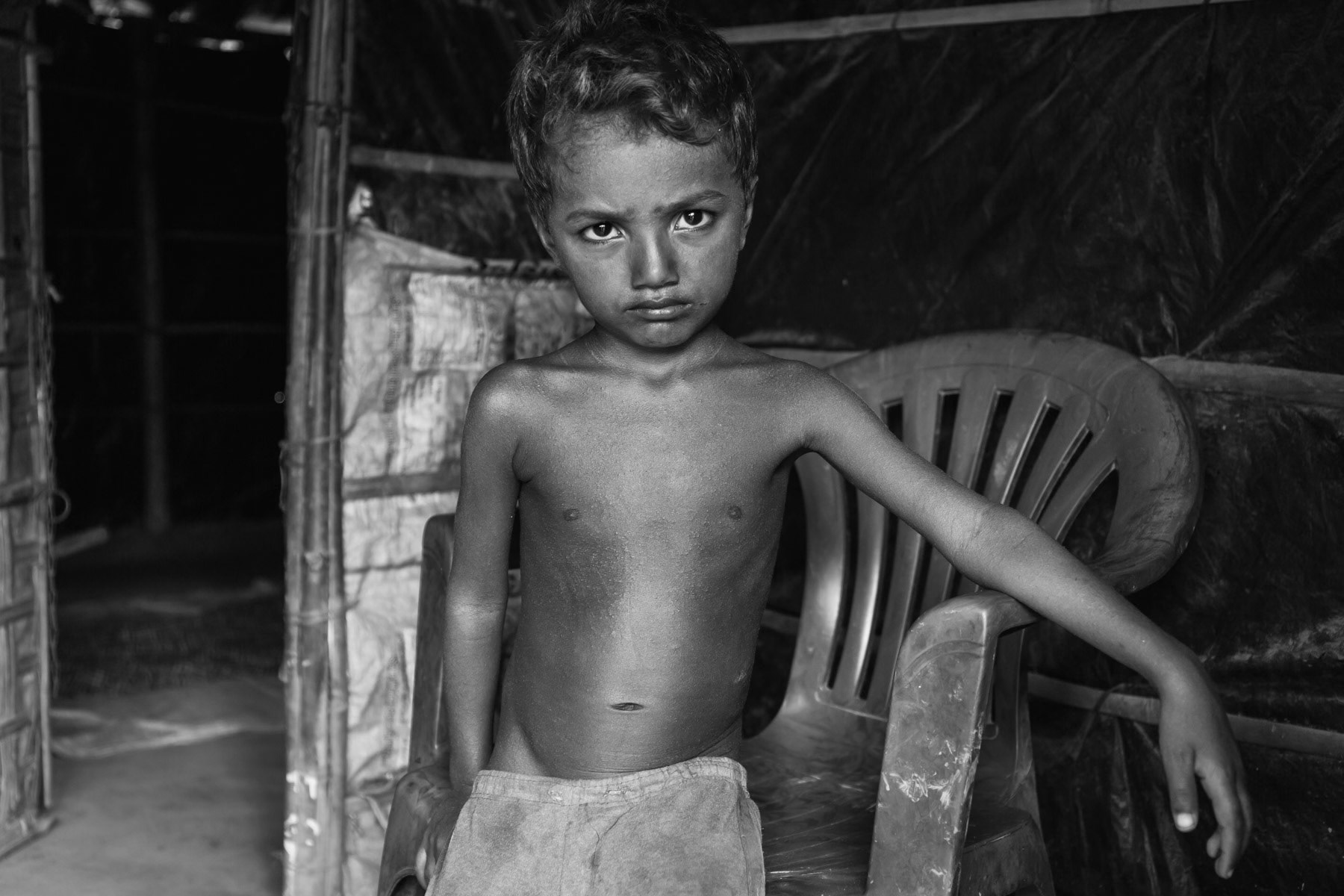
Stateless Rohingya refugee, Nagli Nuh camp, Mewat, India, June 2016
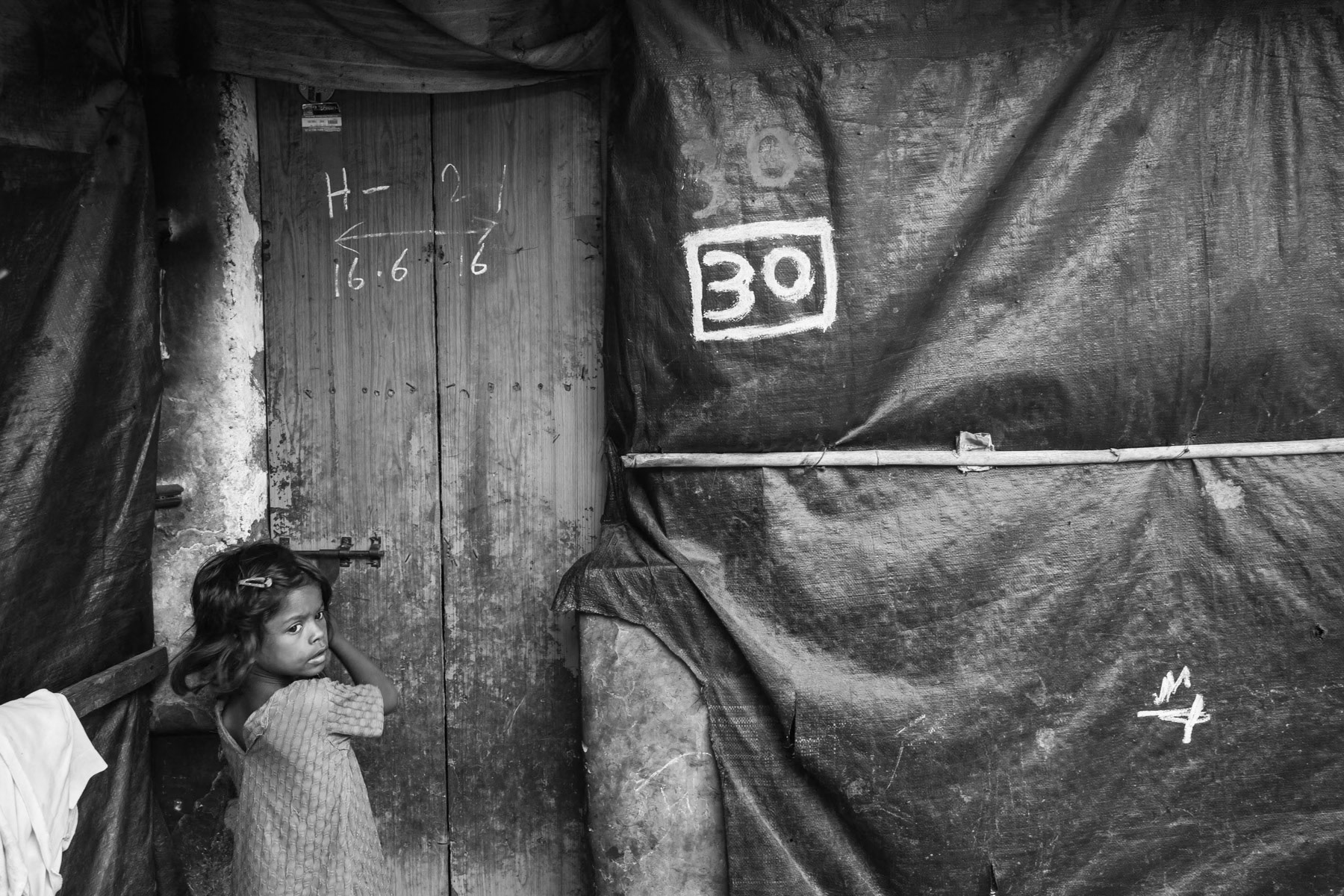
Balapur camp for Rohingya refugees from Myanmar, Hyderabad, India, June 2016
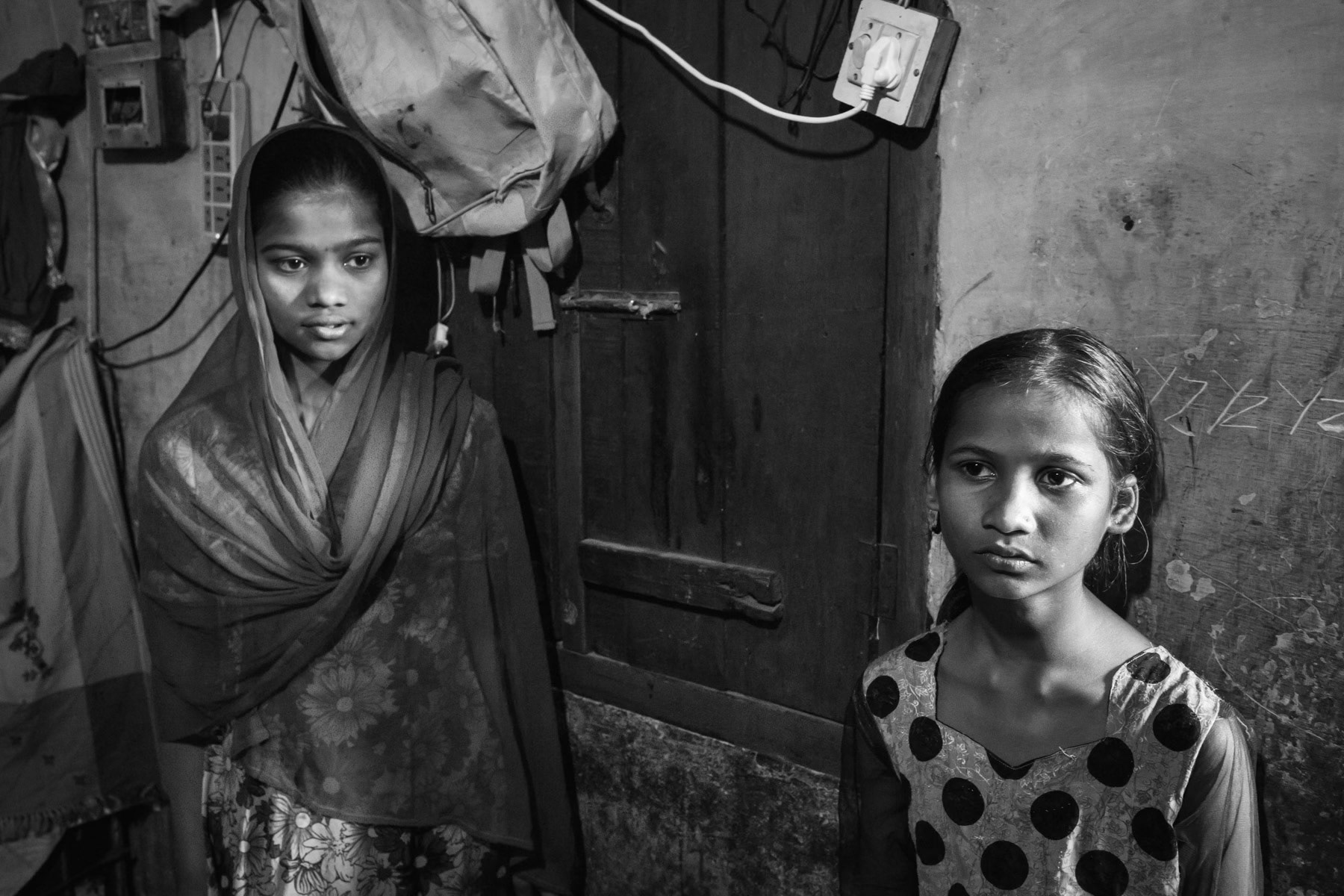
Rohingya family living in Shriram Colony in Kajuri, Rajiv Naghar in the suburbs of New Delhi, India, January 2016
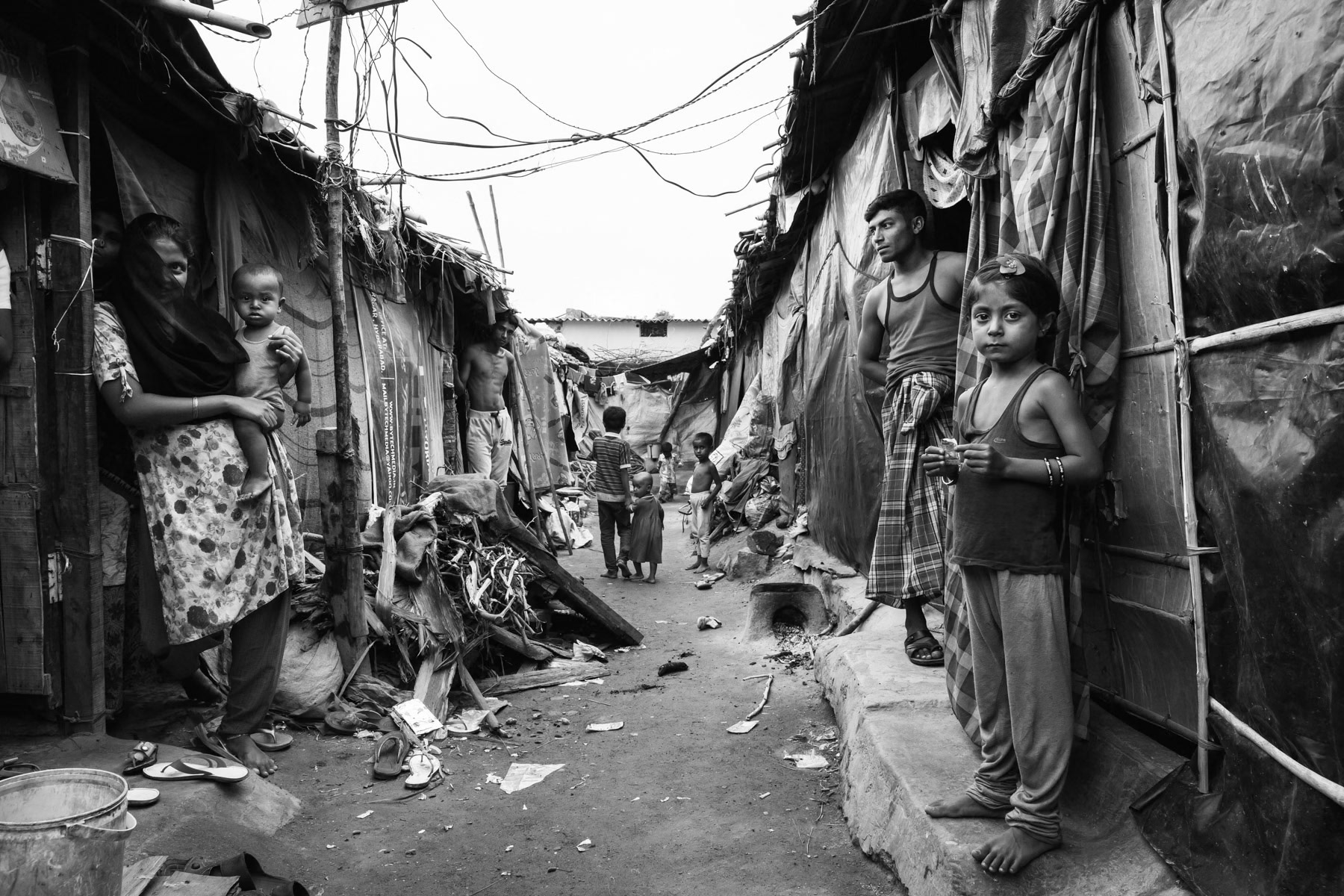
Rohingya refugees from Burma, Balapur makeshift camp, Hyderabad, India, June 2016
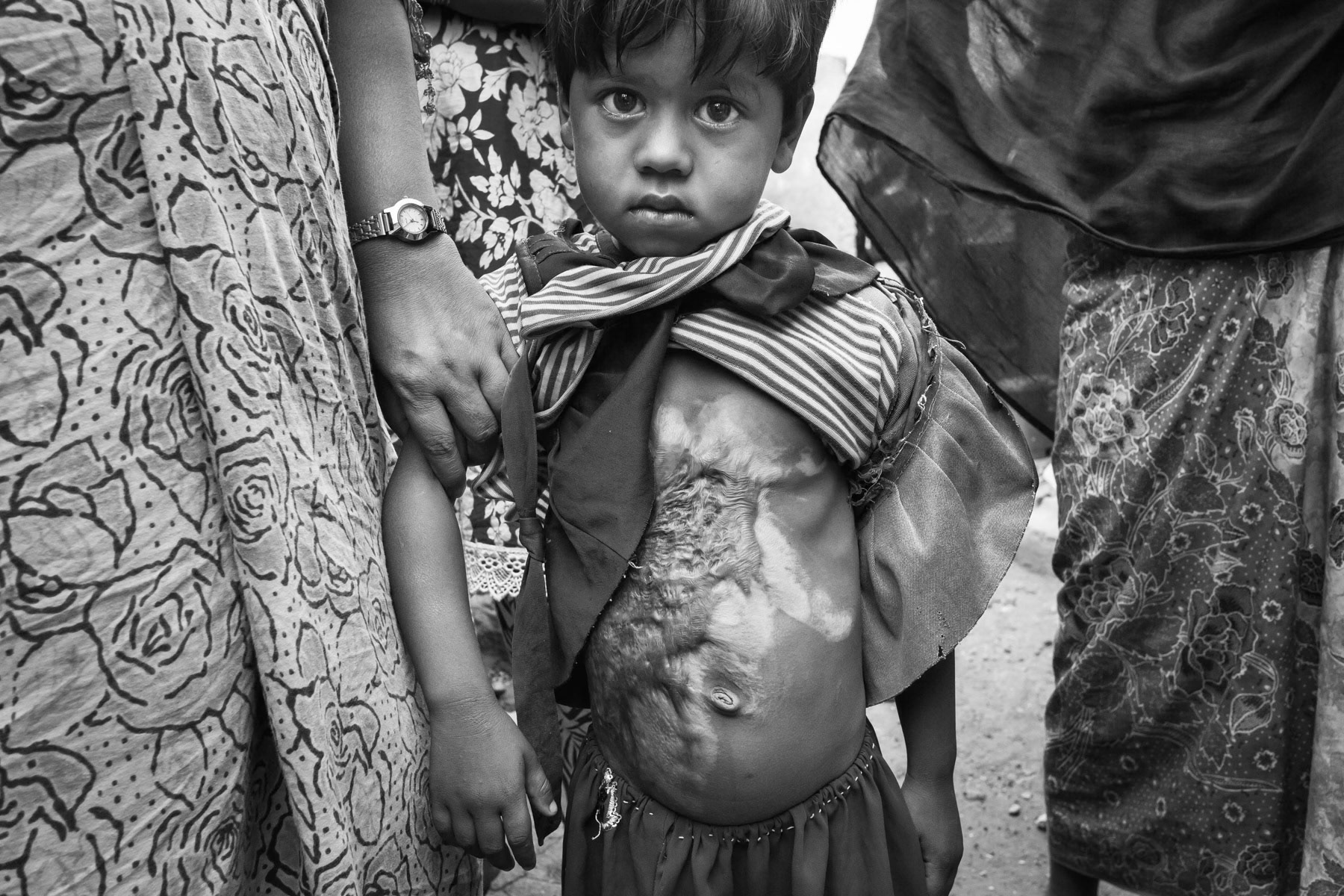
Four year old girl with severe burn injuries. Being stateless and having no status in India, the Rohingya refugees have no or only very limited access to primary health care and can not afford the treatments. Balapur camp, Hyderabad, India, June 2016
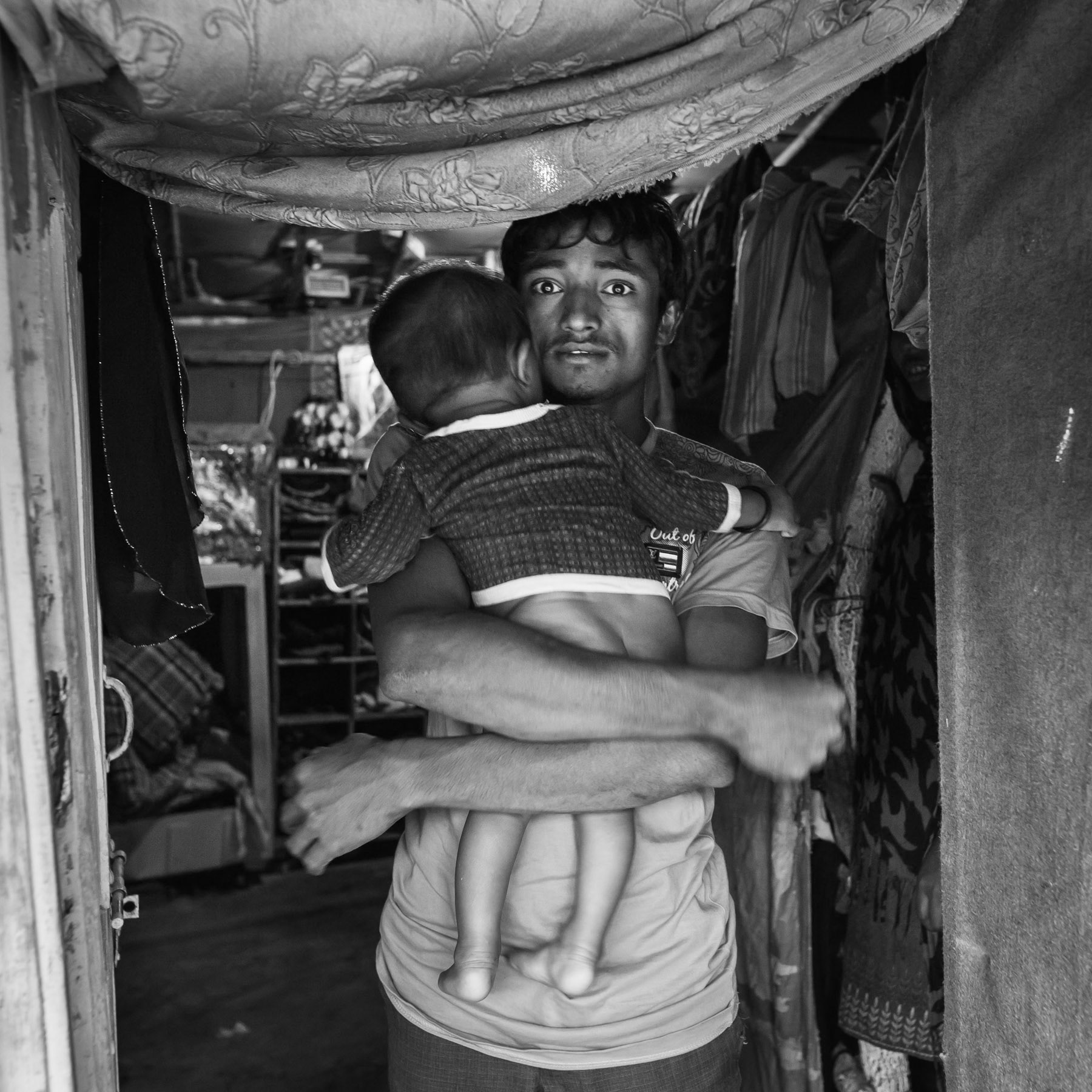
Father and his child, Baba Nagar Rohingya settlement in Hyderabad, India, June 2016
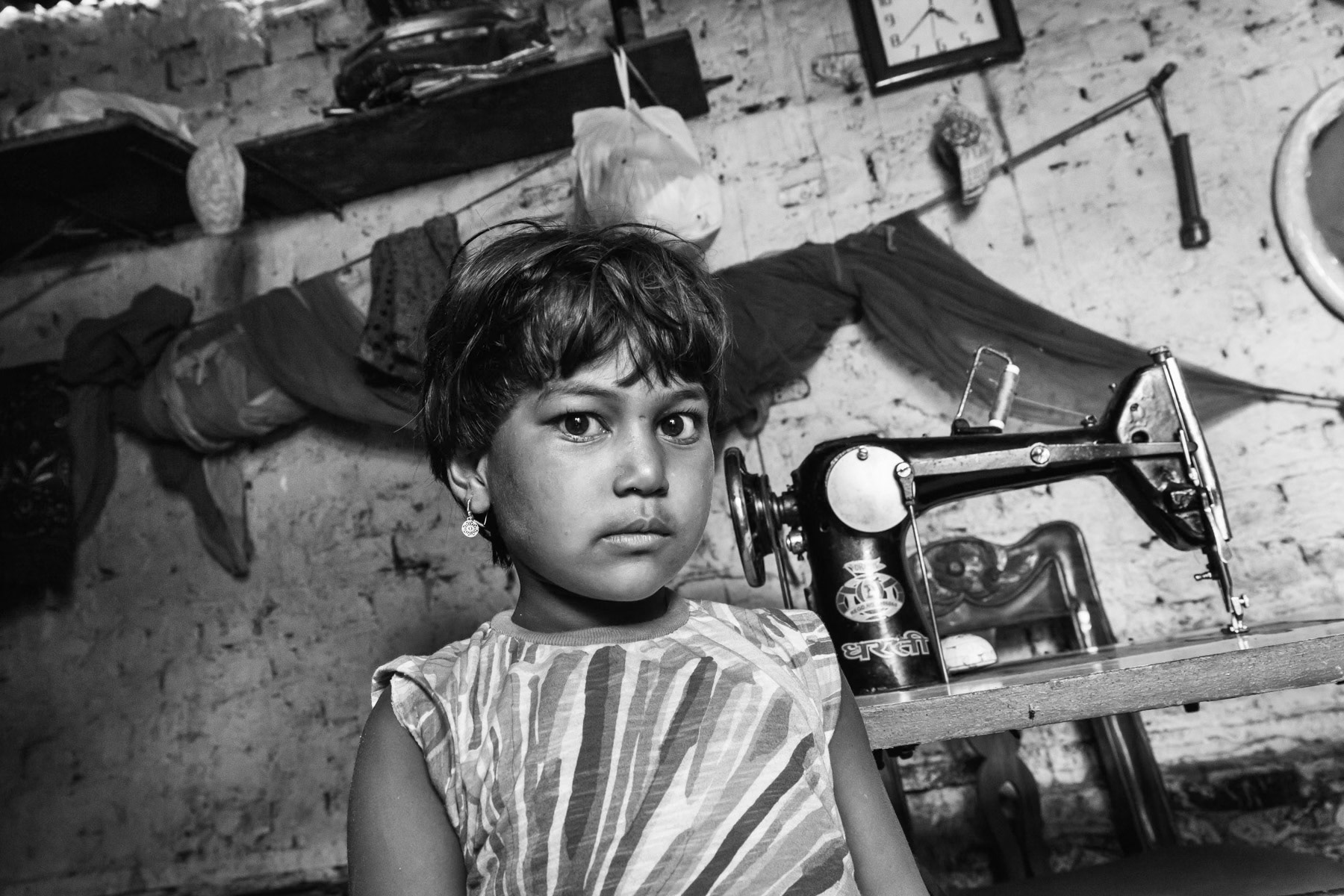
Rohingya refugee from Myanmar, Hasanpura in Jaipur, India, June 2016
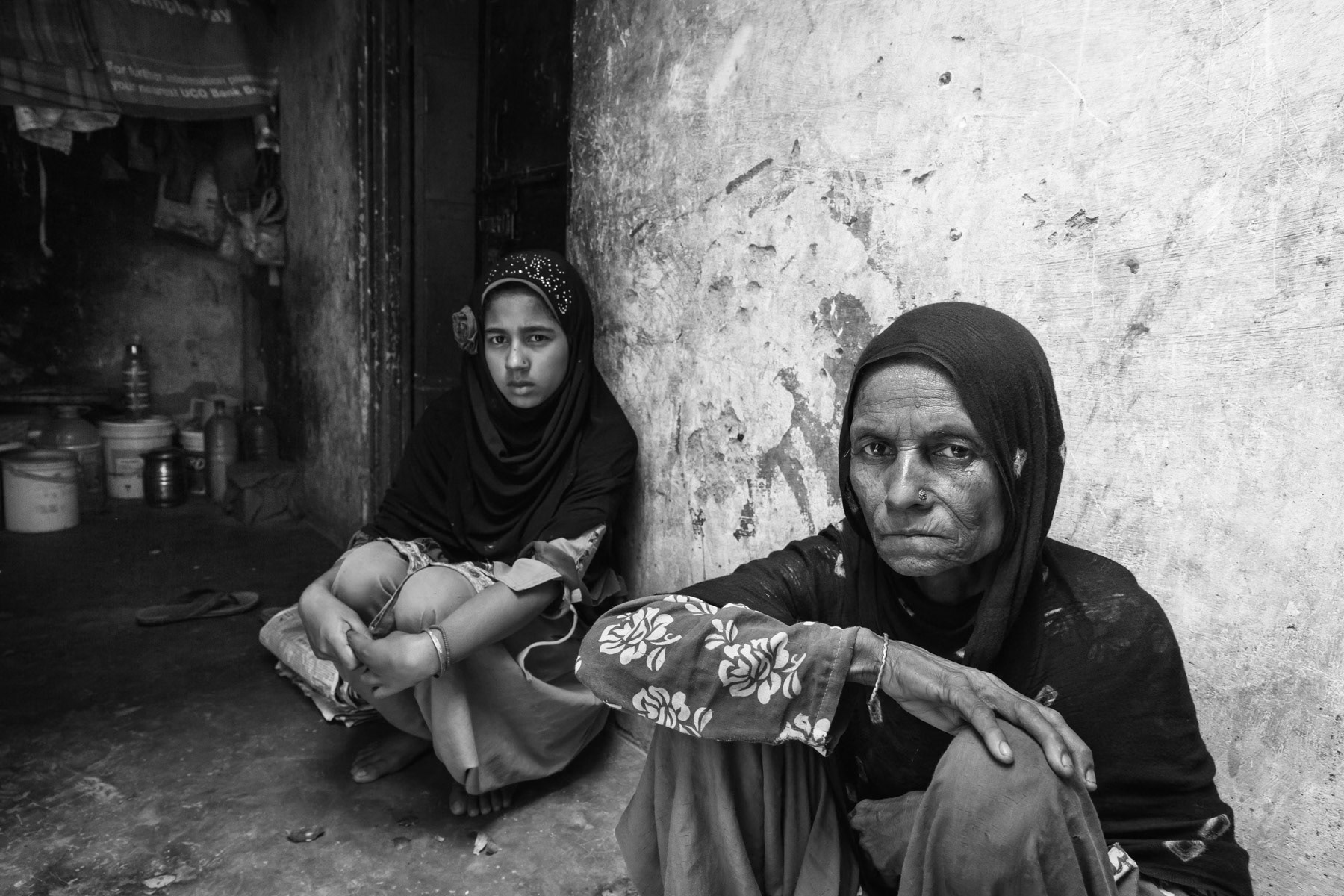
Rohingya refugees from Myanmar, Hasanpura in Jaipur, India, June 2016
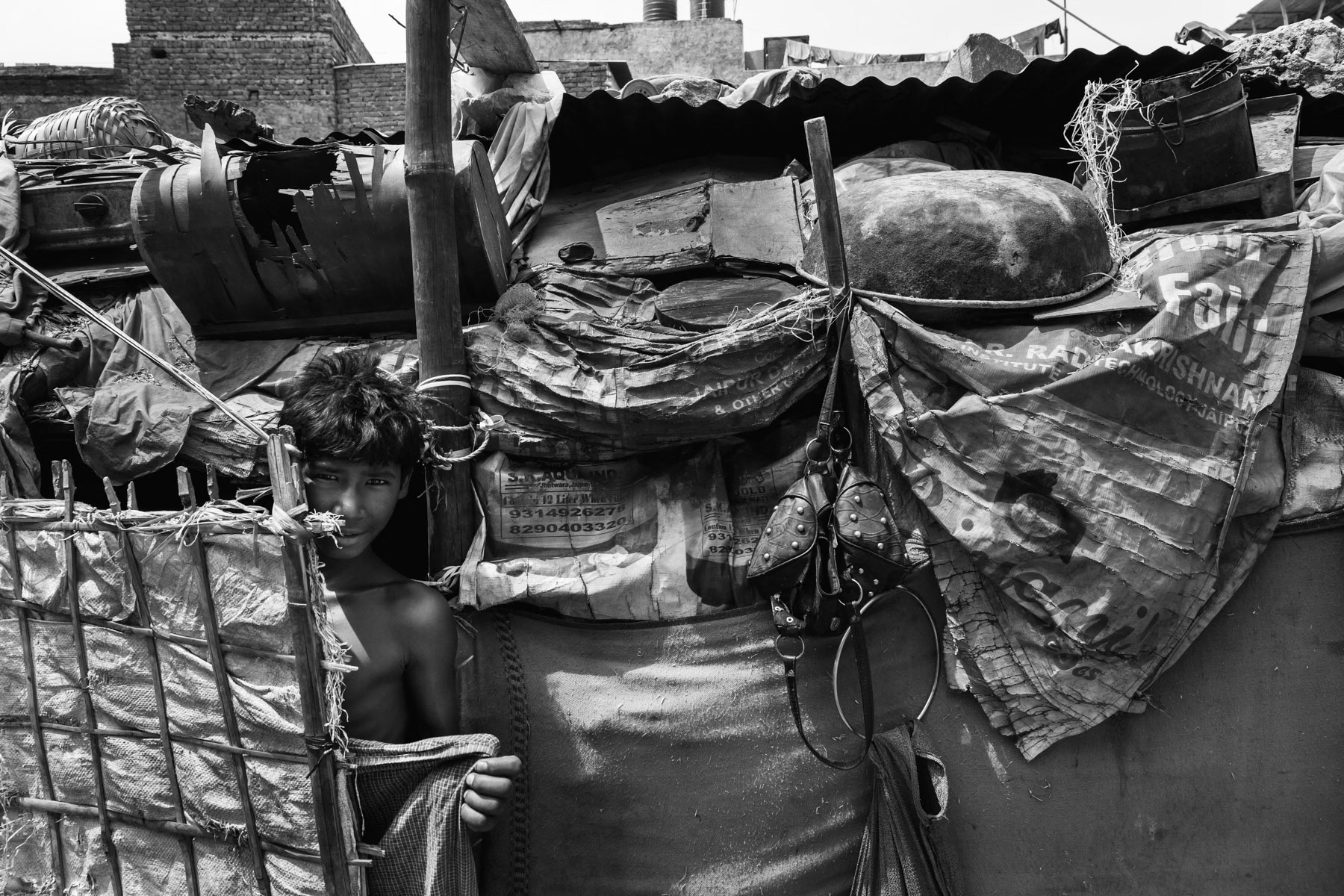
The Rohingya community in Jaipur consists of about 200 families working mainly as waste collectors. Makeshift shelter in Welcome Colony. Hasanpura neighborhood, Jaipur, India, June 2016
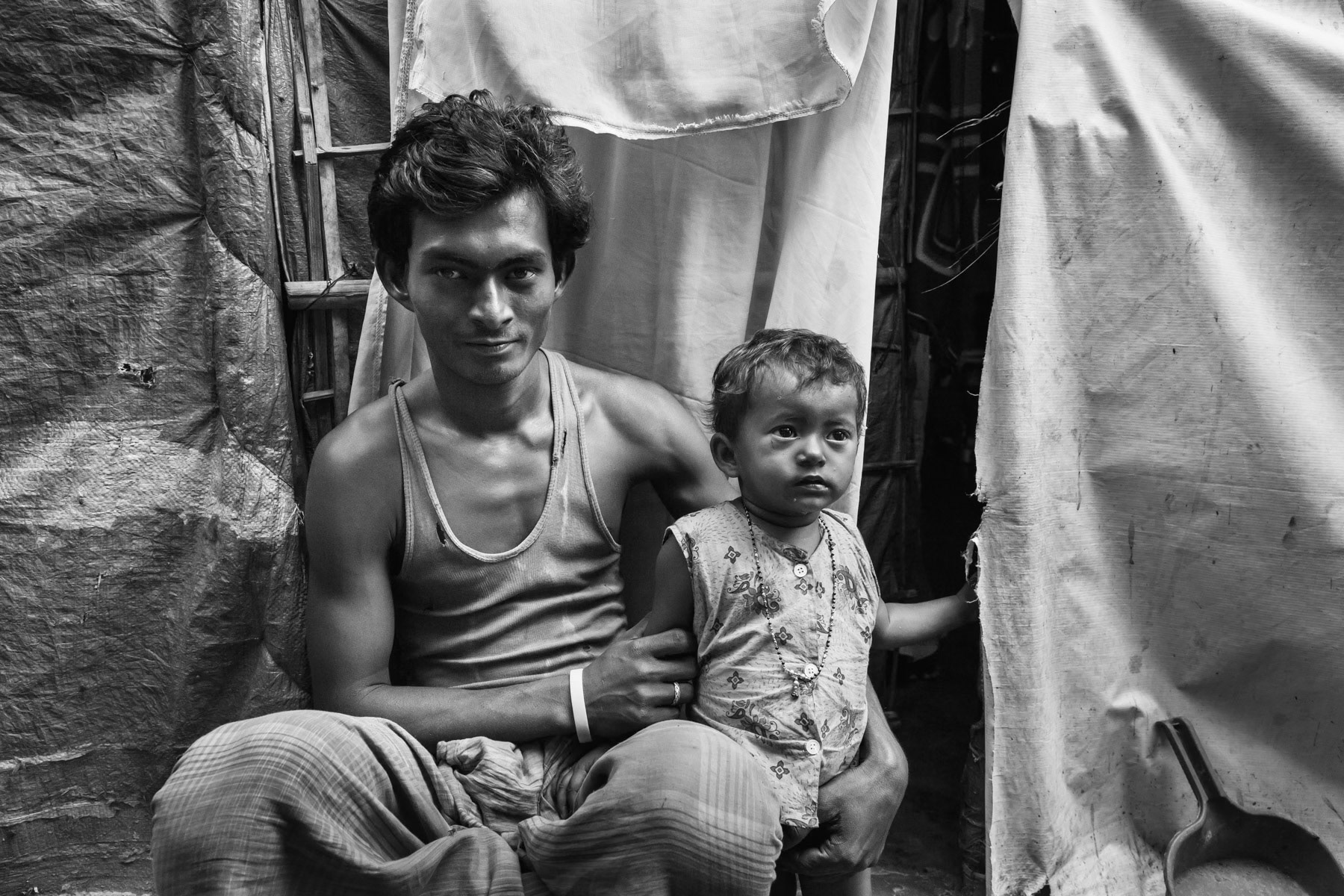
Rohingya refugees from Burma, Balapur makeshift camp, Hyderabad, India, June 2016
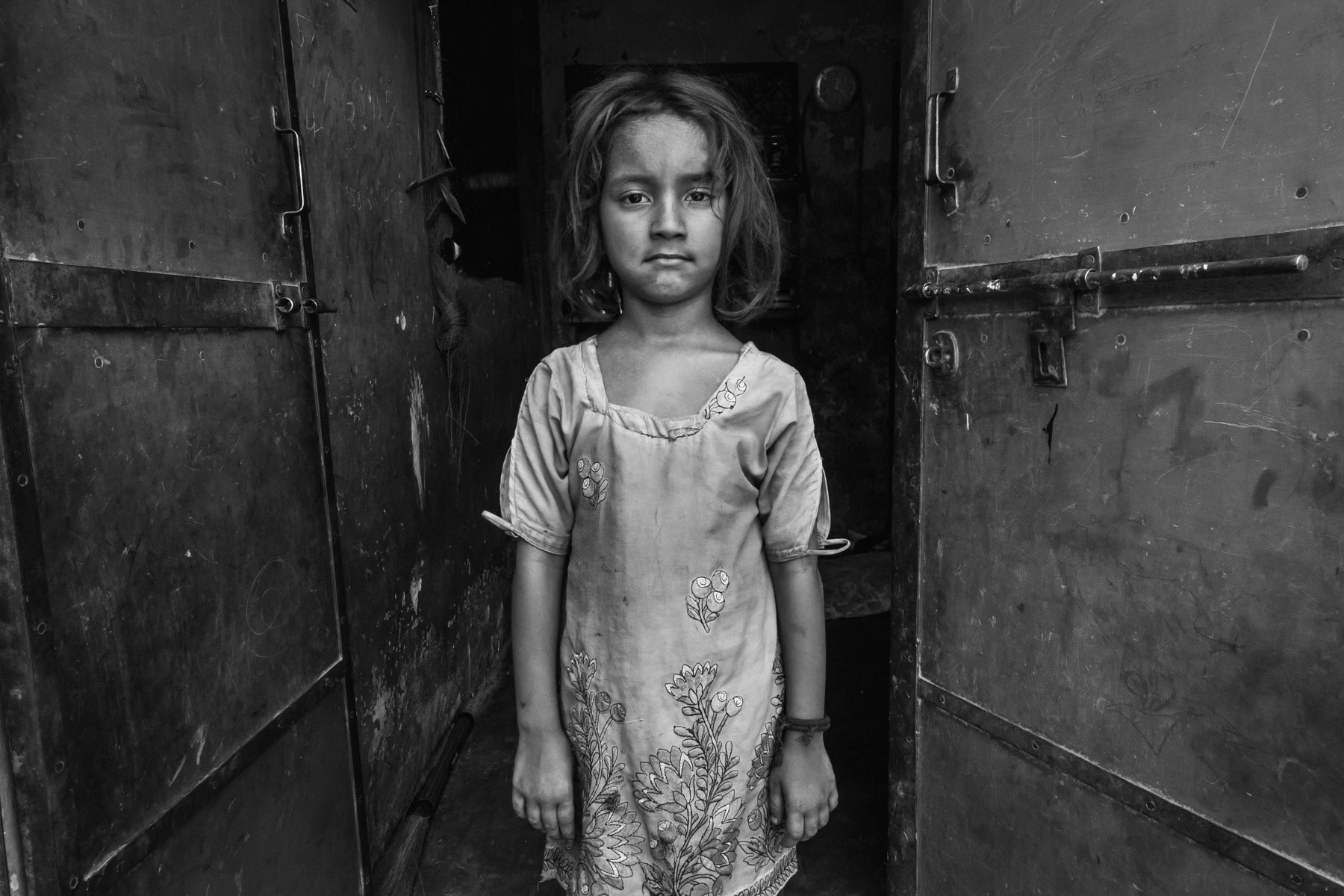
Stateless Rohingya girl from Burma. Hasanpura neighborhood, Jaipur, India, June 2016
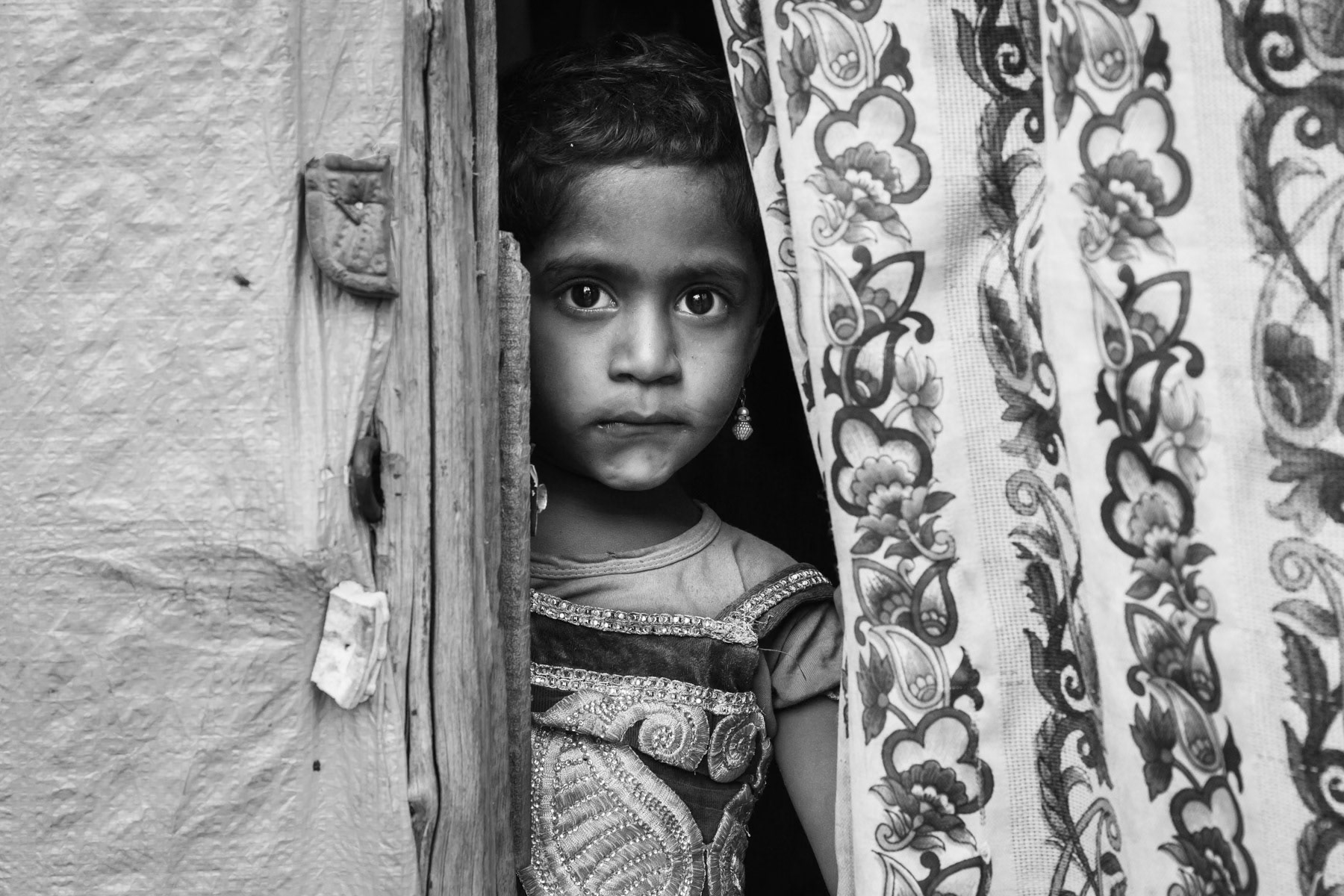
Rohingya girl, Balapur camp, Hyderabad, India, June 2016
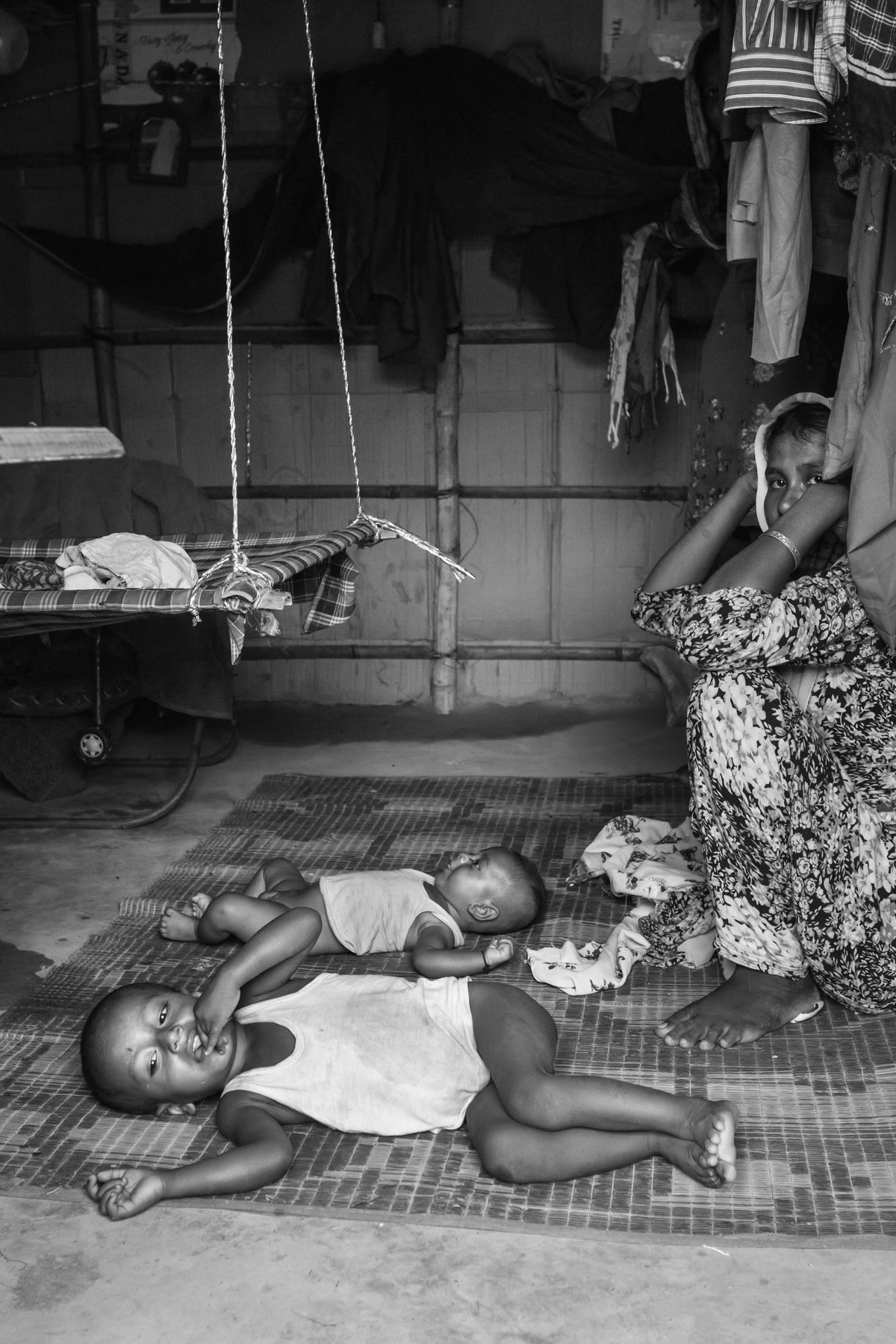
Stateless Rohingya refugee, Nagli Nuh camp, Mewat, India, June 2016
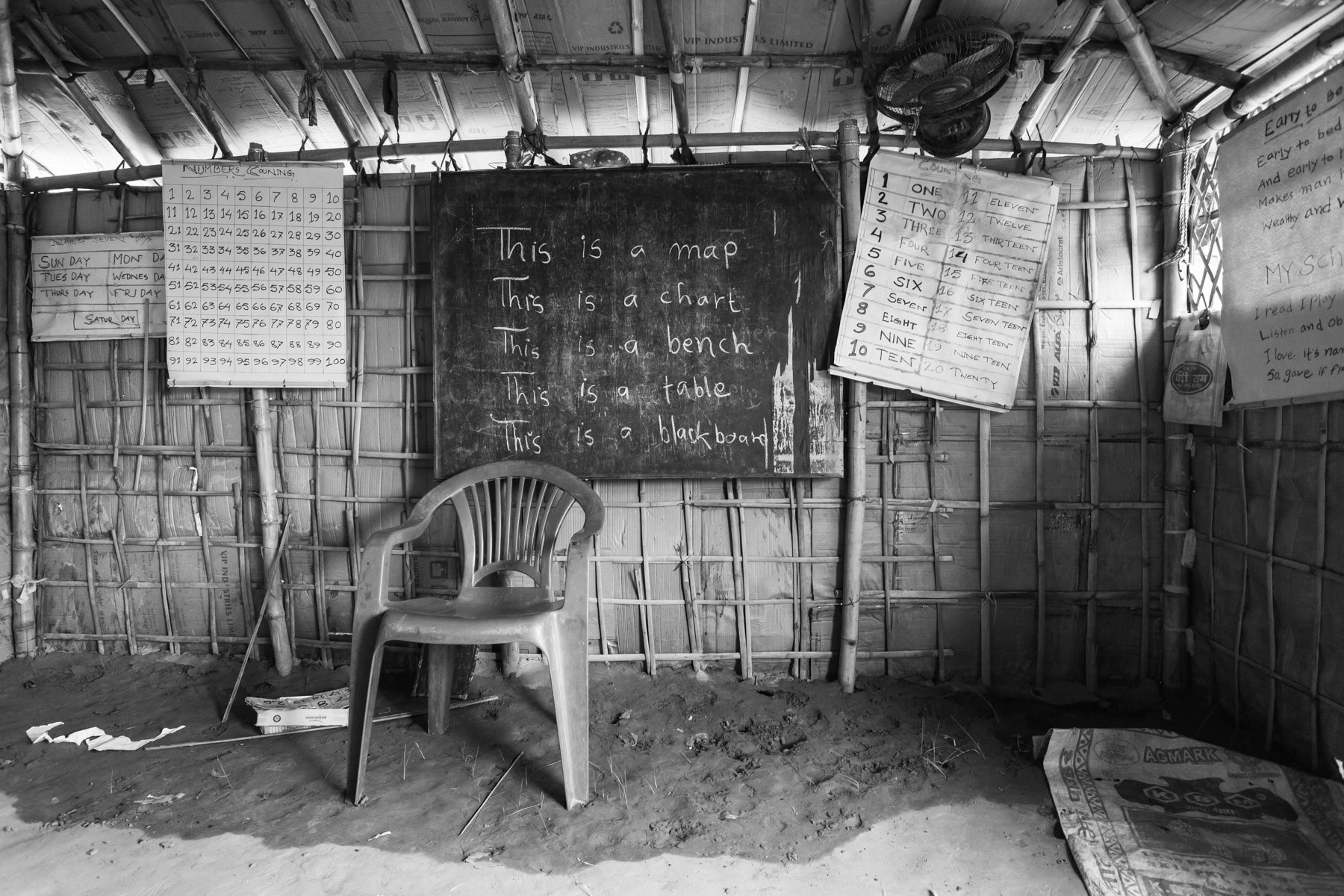
The sole classroom of the camp. Rohingya settlement in Mewat, Haryana, India, June 2016
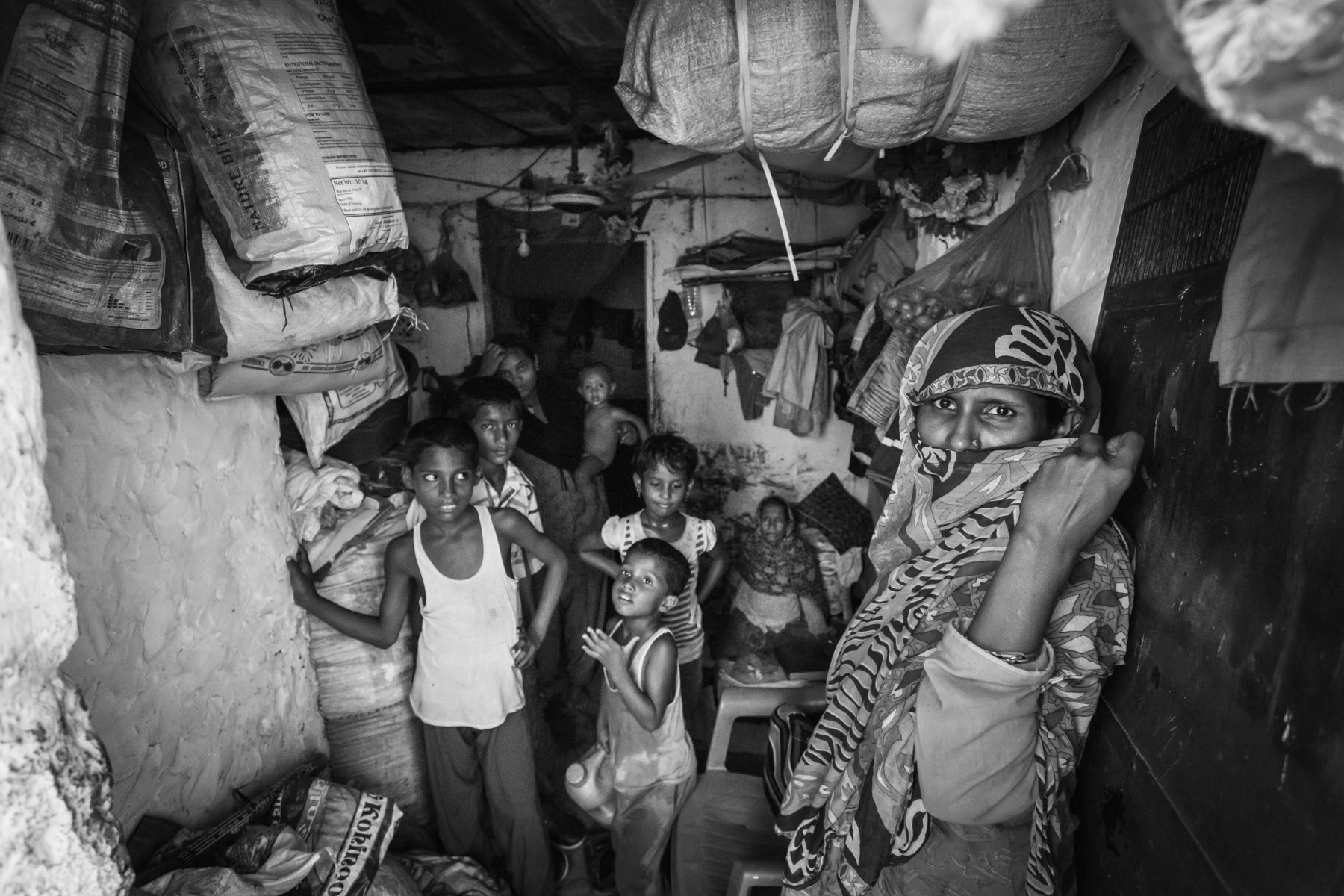
Rohingya refugee family surviving as waste collectors. Mehnat Nagar in Hasanpura neighborhood, Jaipur, India, June 2016
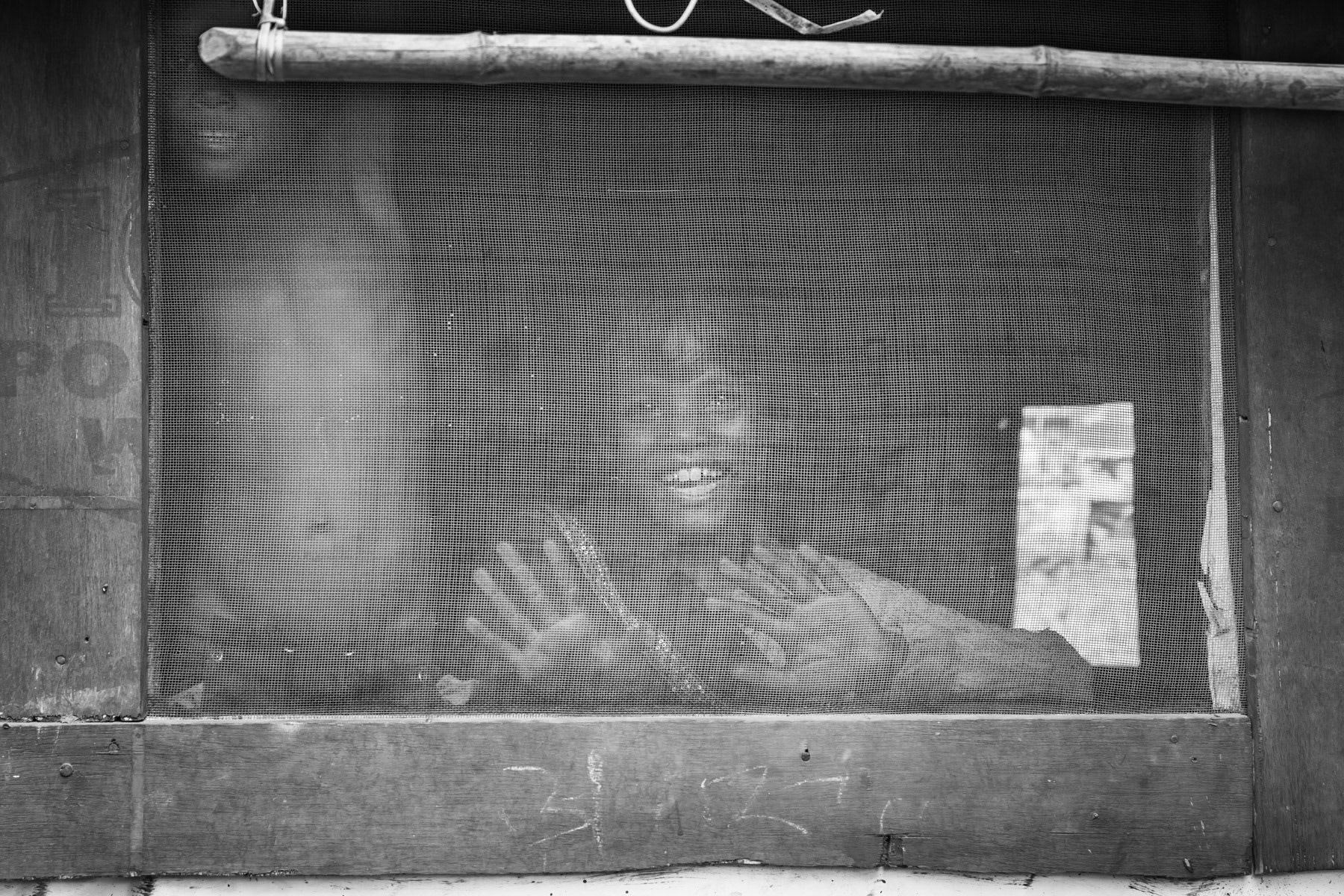
Sharam Vihar makeshift camp for Rohingya refugees. Ohkla area in southern Delhi, India, June 2016
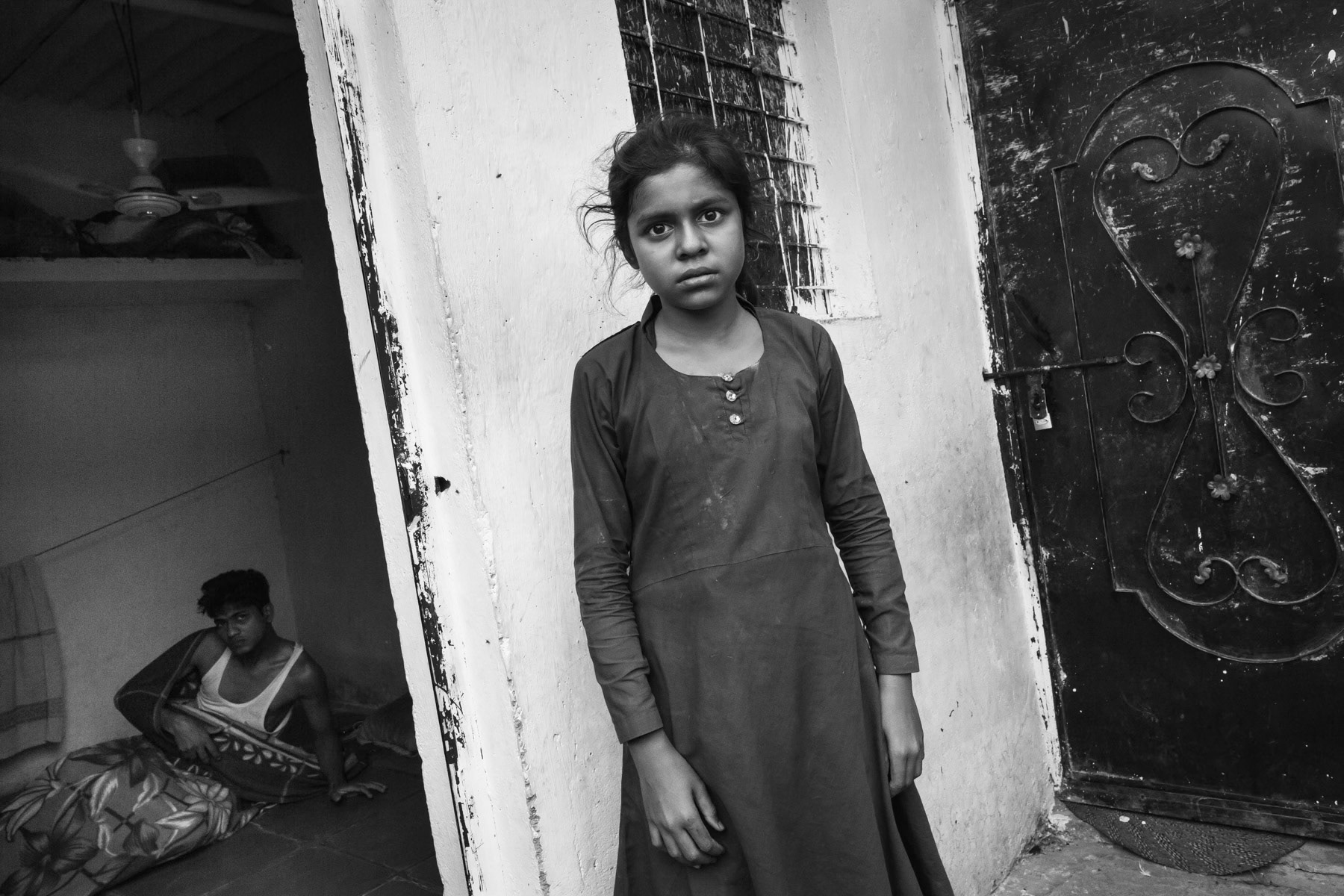
Rohingya refugee from Burma, Hyderabad, India, June 2016
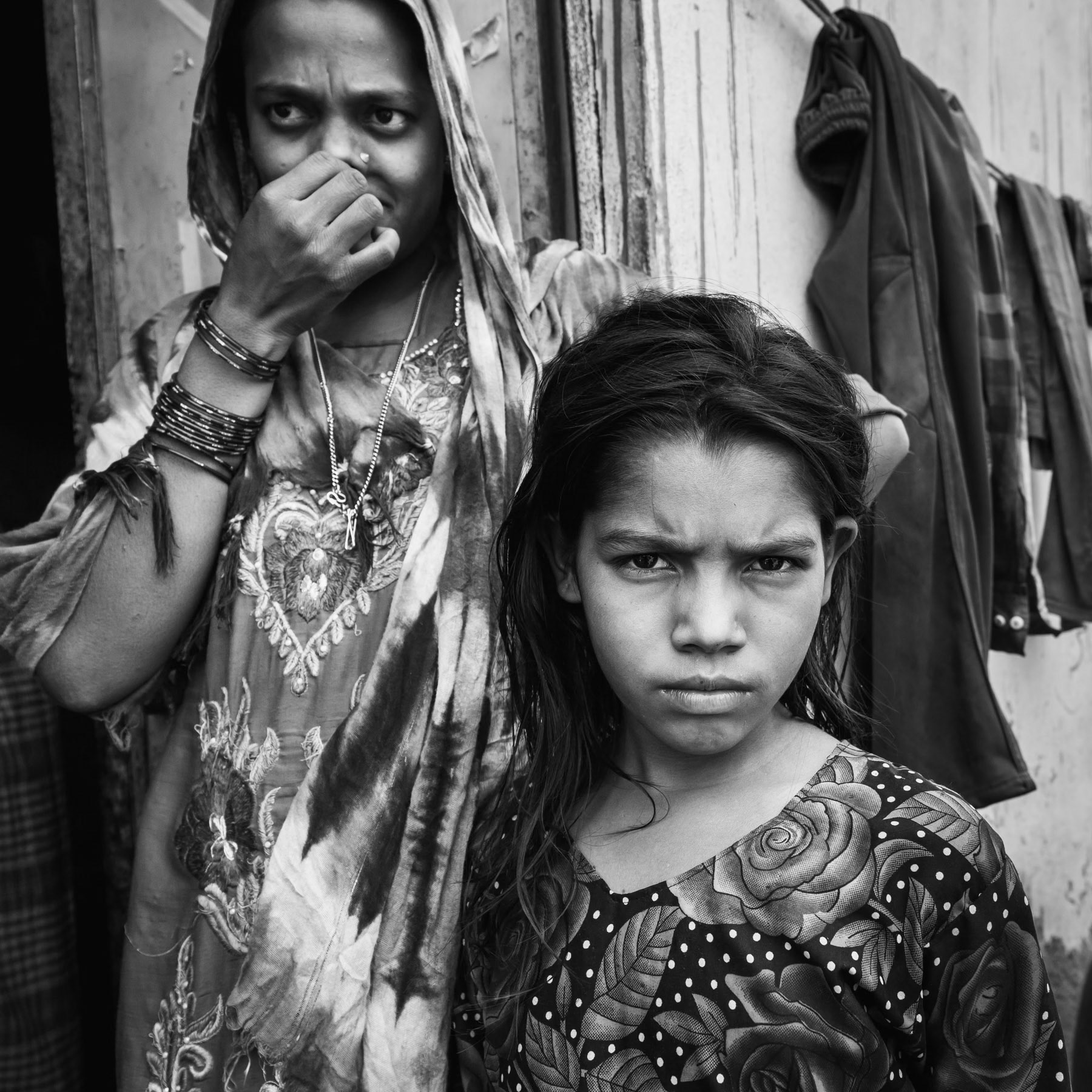
Rohingya refugees from Myanmar, Hasanpura in Jaipur, India, June 2016
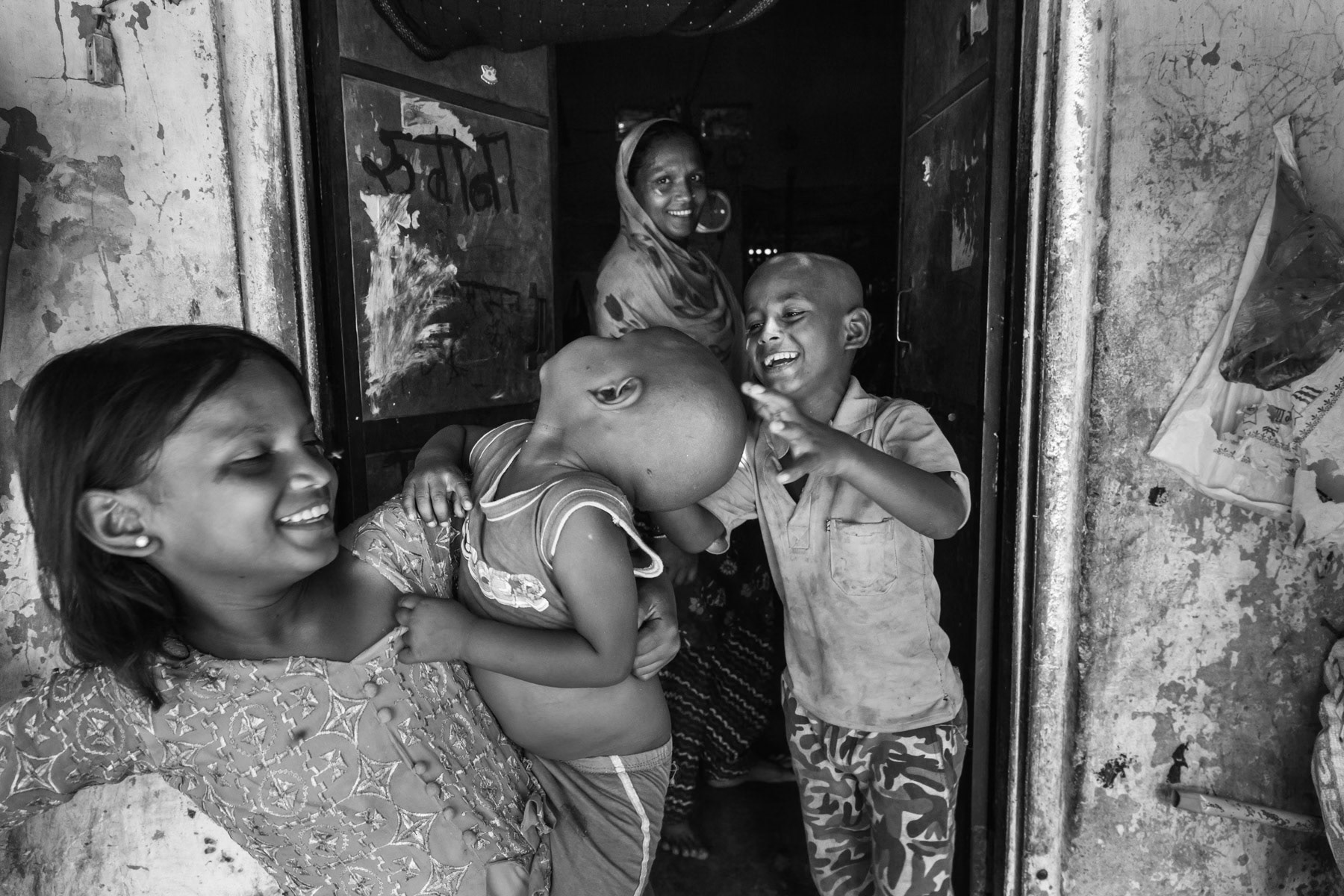
Rohingya refugees from Myanmar, Hasanpura in Jaipur, India, June 2016
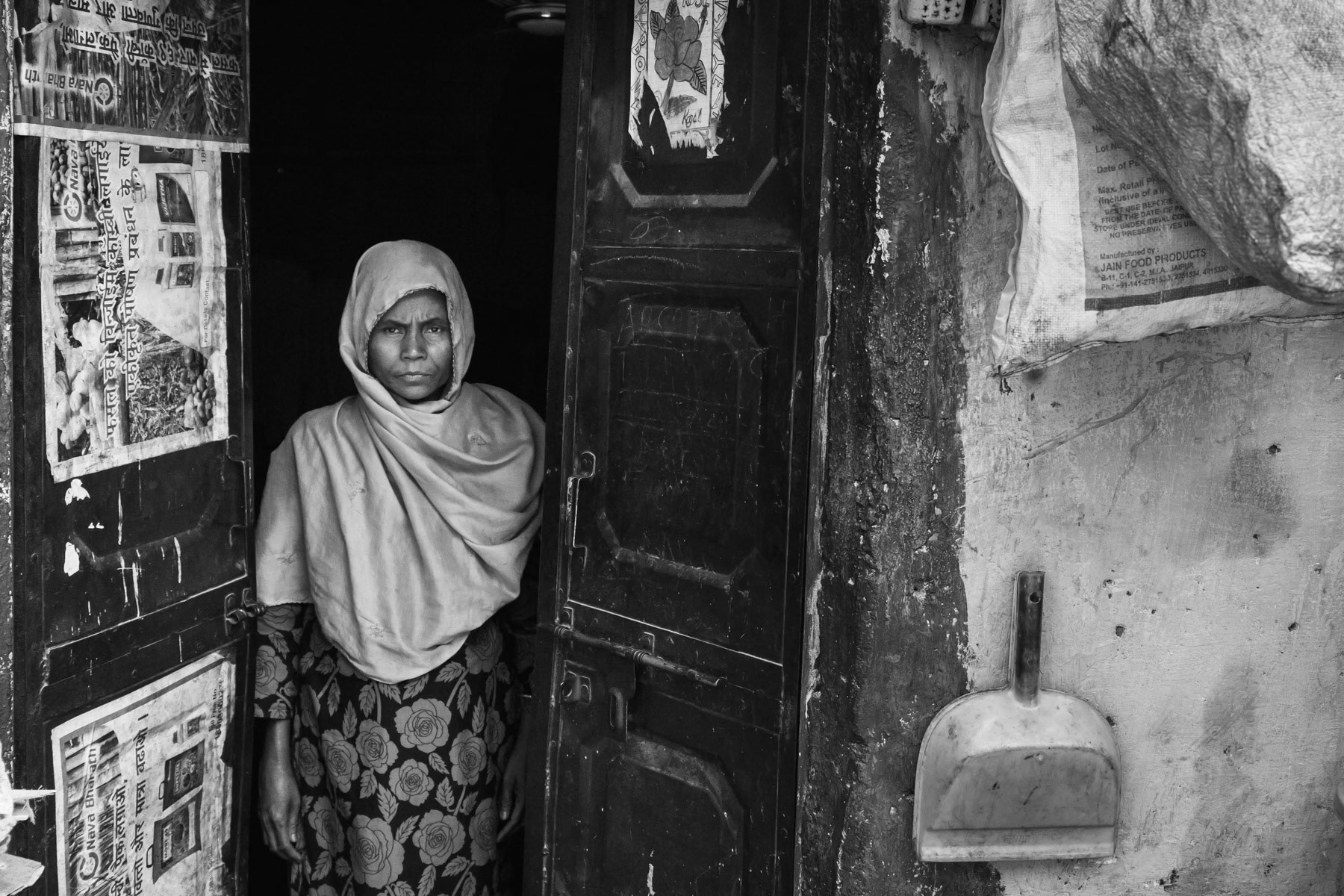
Rohingya refugee from Myanmar, Hasanpura in Jaipur, India, June 2016
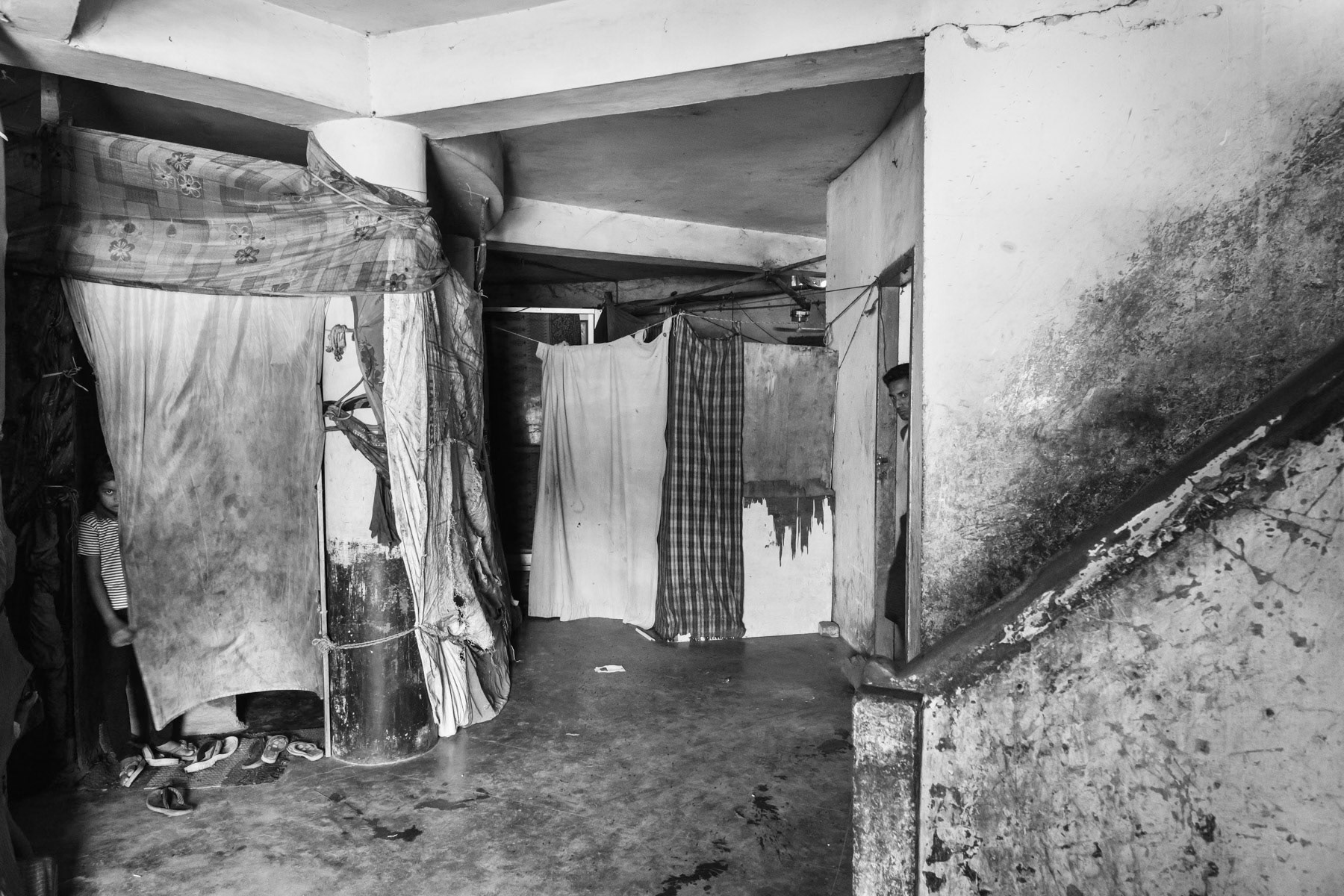
One hundred Rohingya refugees live in an abandonned cyclone shelter in Kelembakkam near Chennai in the Indian State of Tamil Nadu, India, June 2017
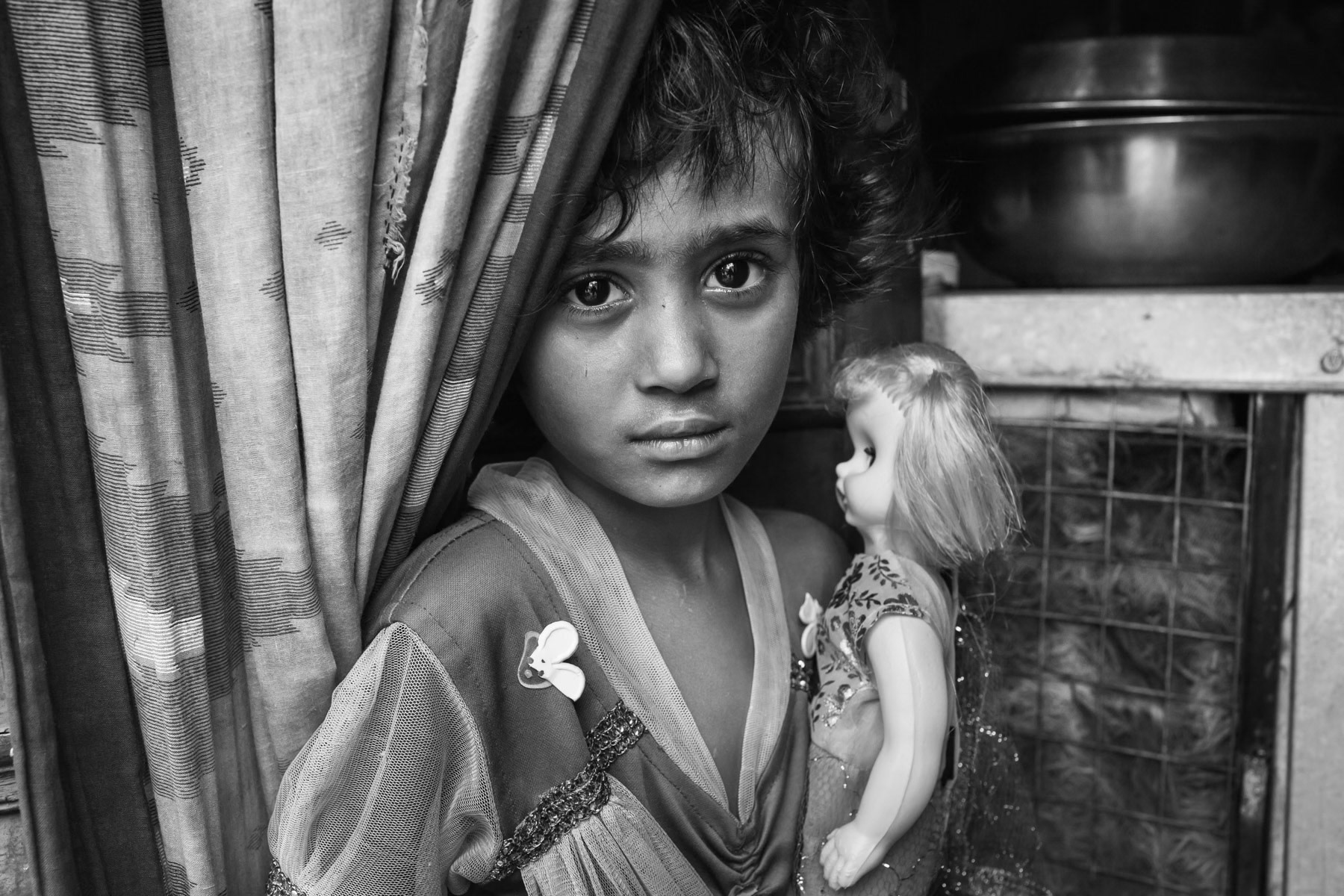
Rohingya girl and her doll, Shriram Colony in Kajuri, New Delhi, June 2016
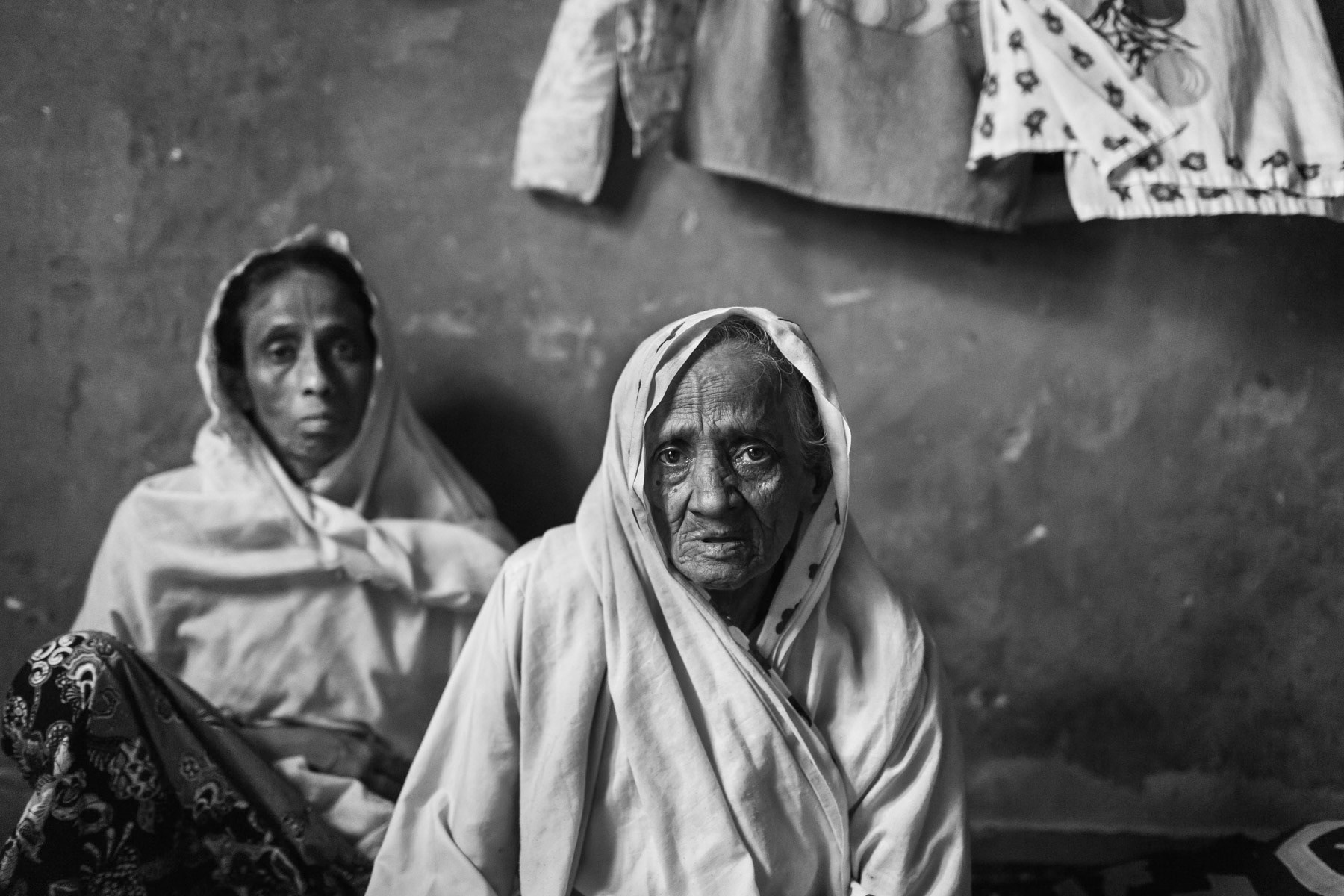
Stateless grand mother of 85 year old with her daughter. Shriram Colony in Kajuri, New Delhi suburbs, India, June 2016
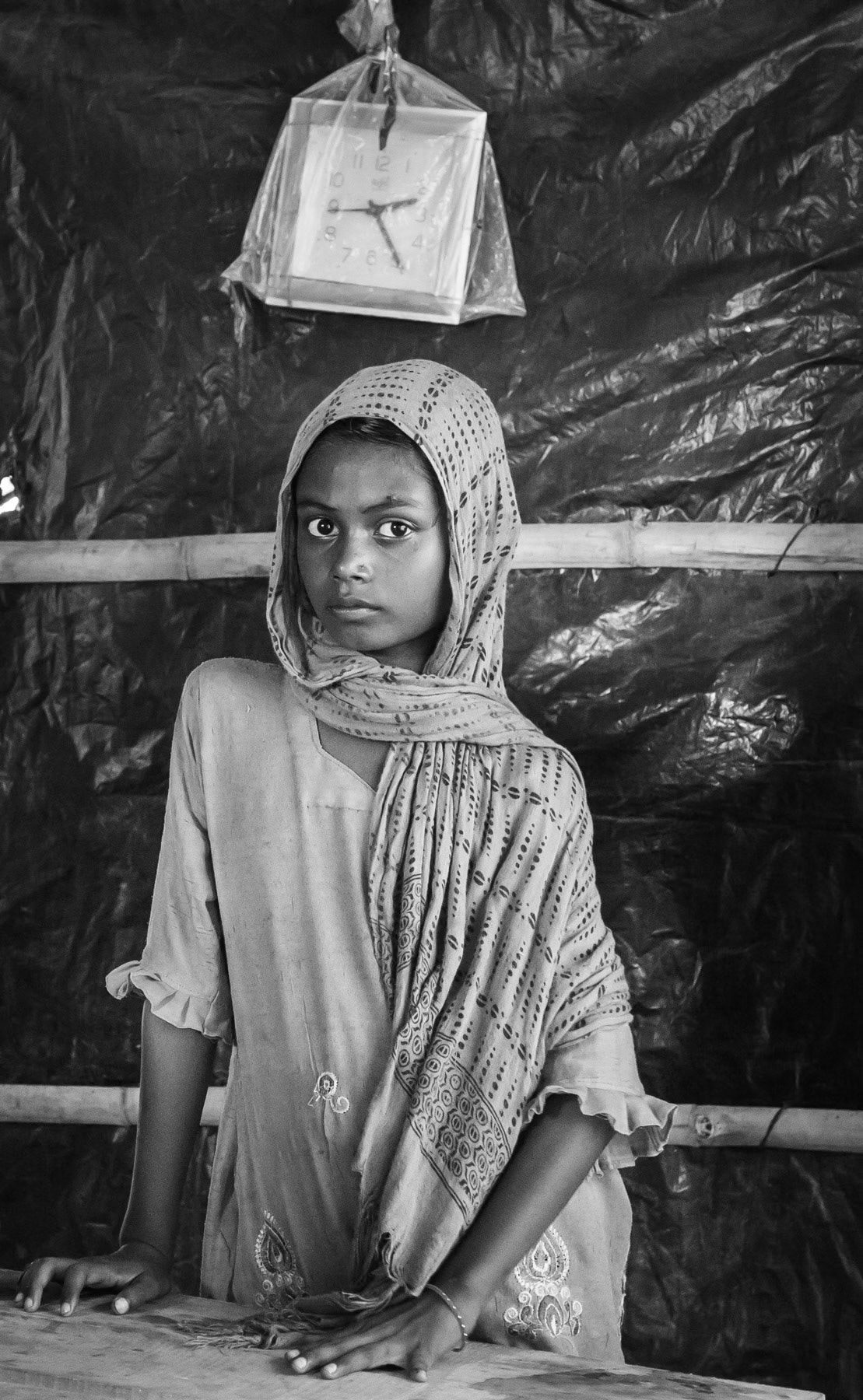
Stateless Rohingya refugee stranded in Mewat, Haryana State, India, June 2016
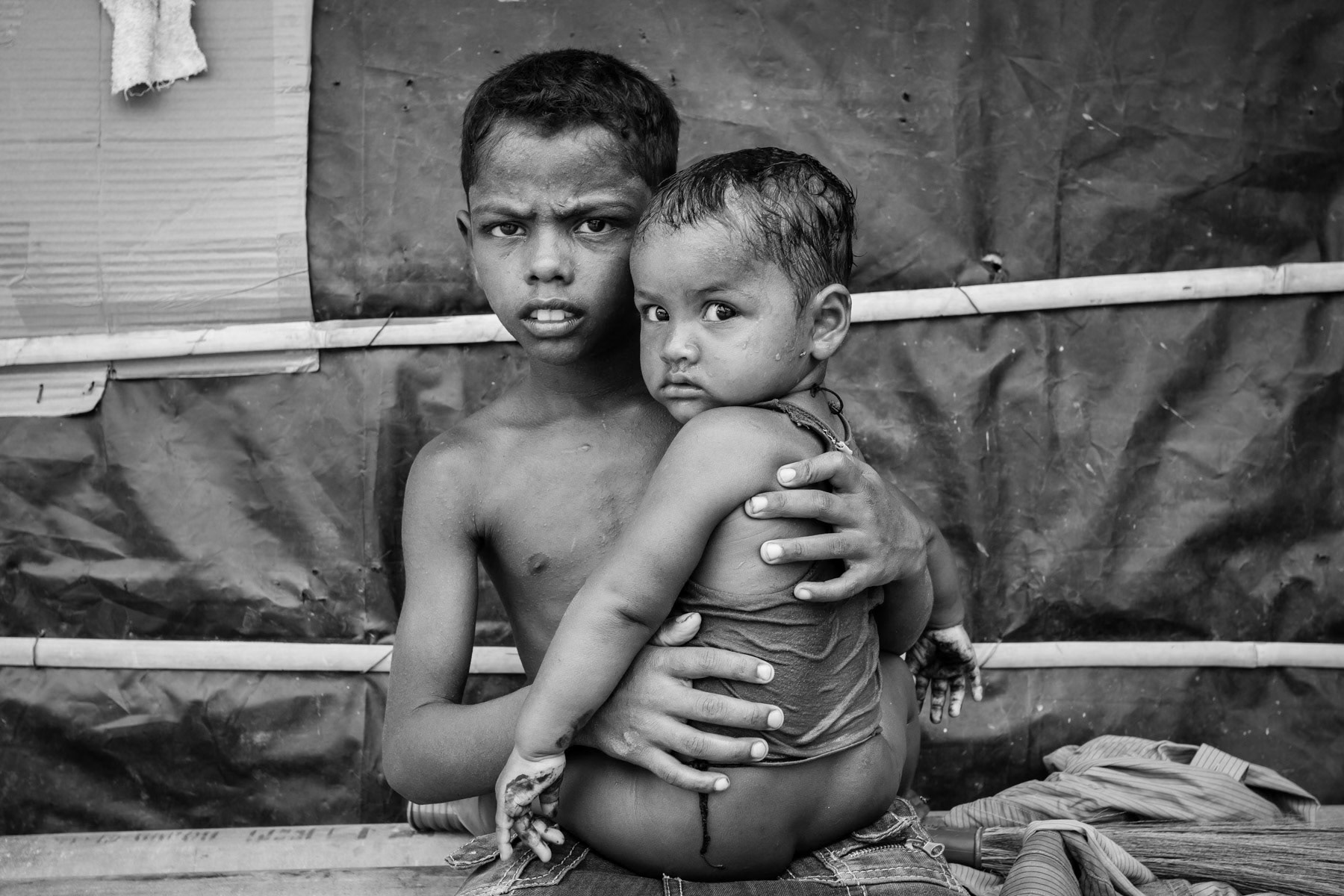
Stranded Rohingya refugees in India. Mewat, Haryana State, June 2016
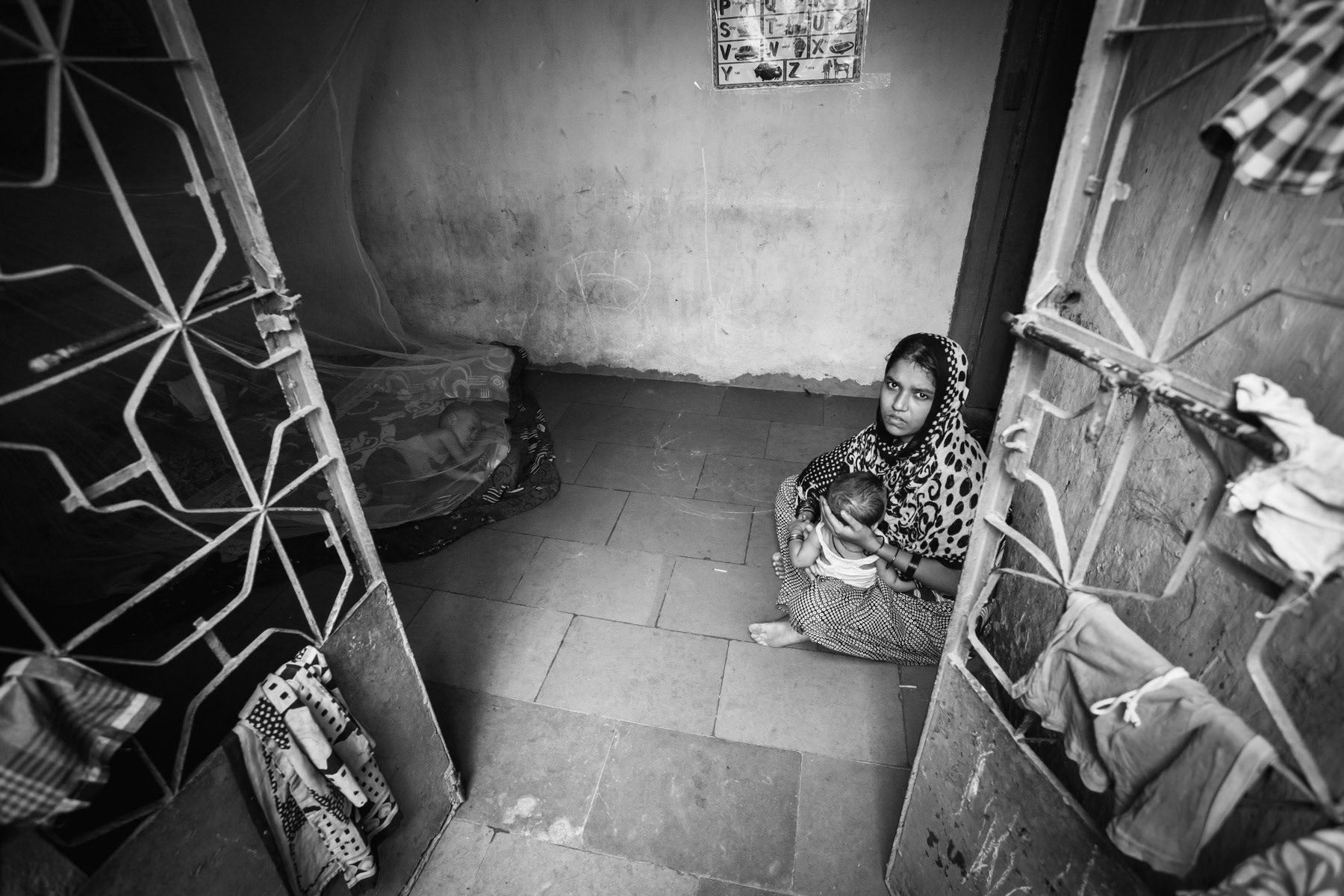
Several Rohingya families live together and can as such afford to rent better housing. Bahadurpura settlement in Hyderabad, India, June 2016
